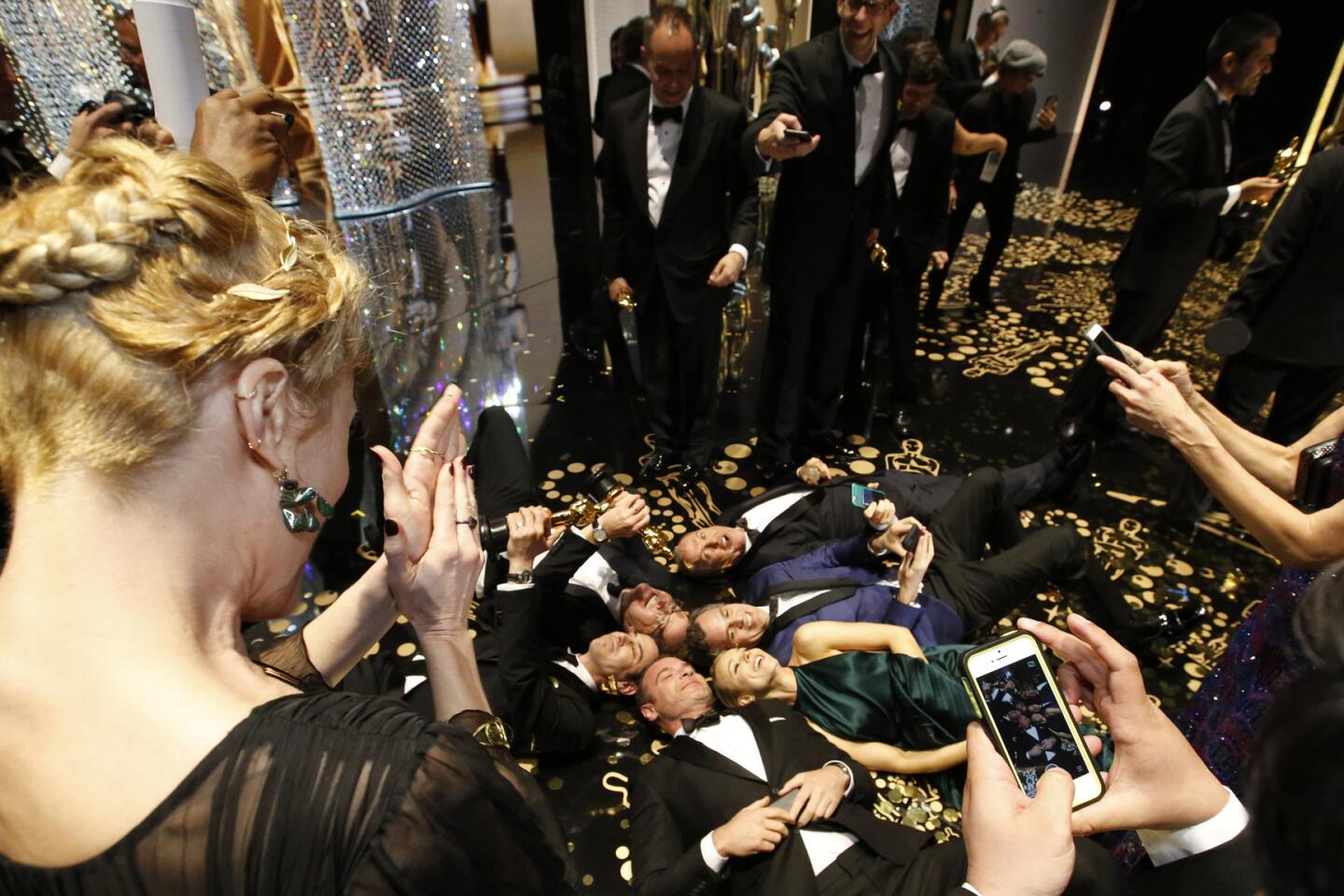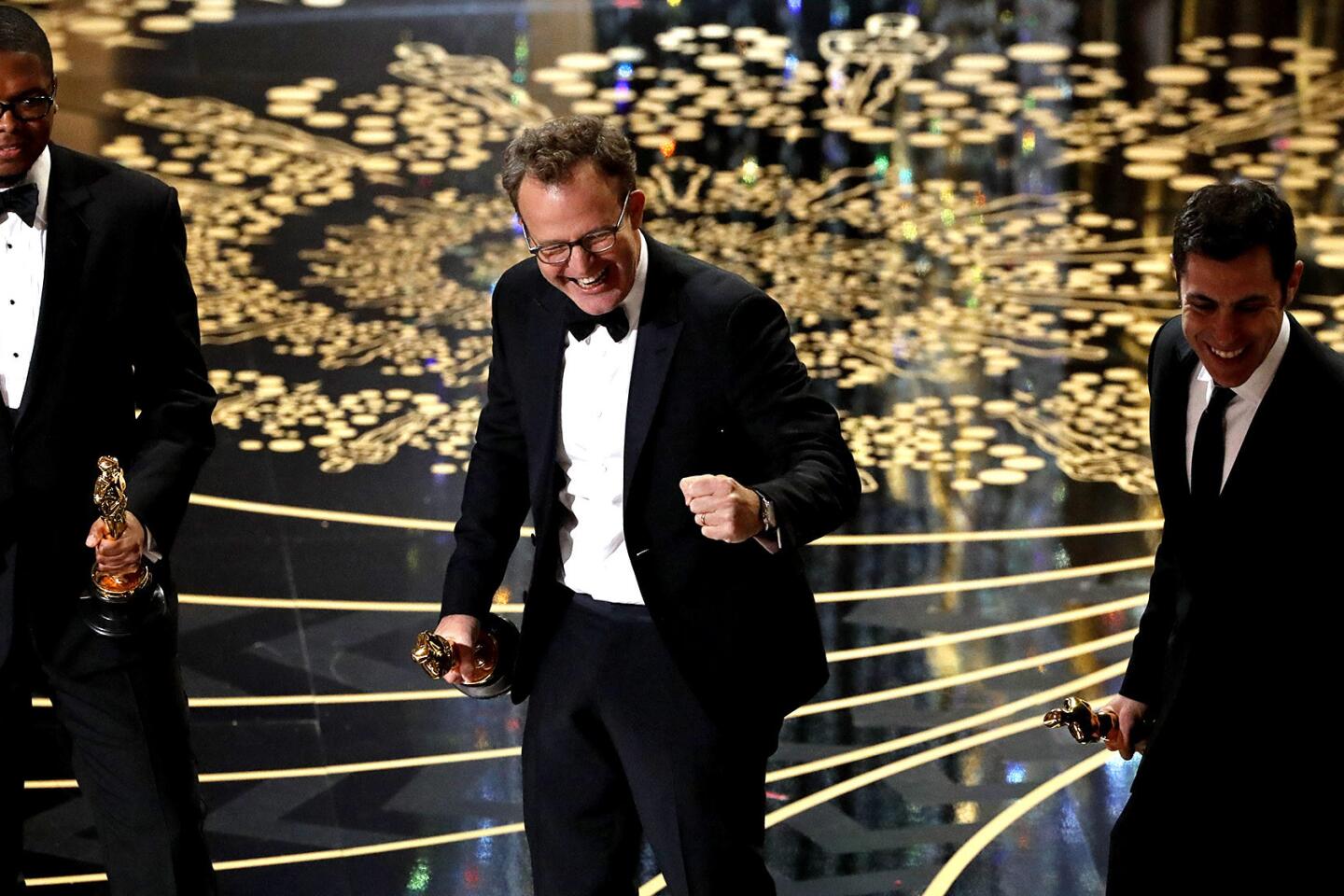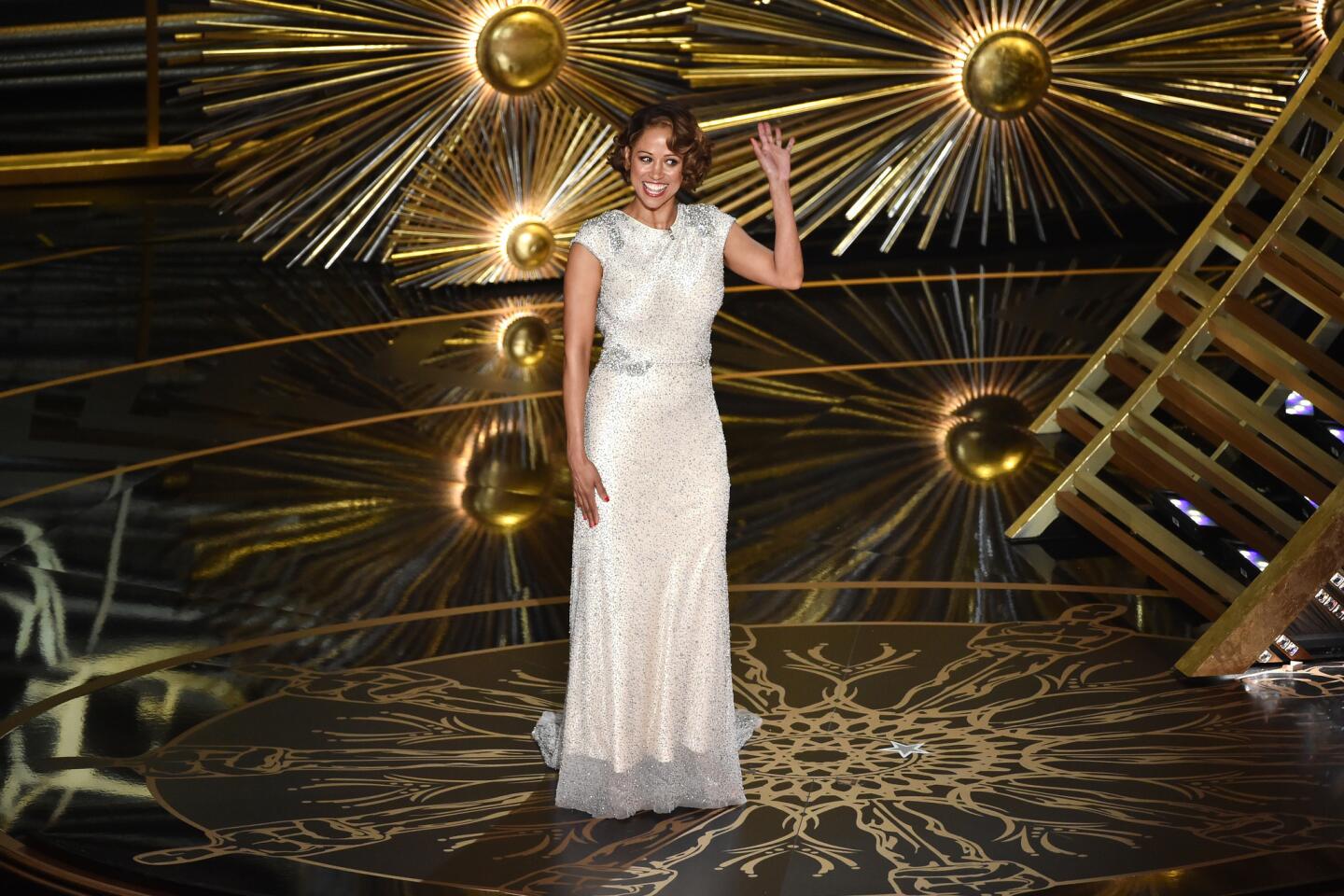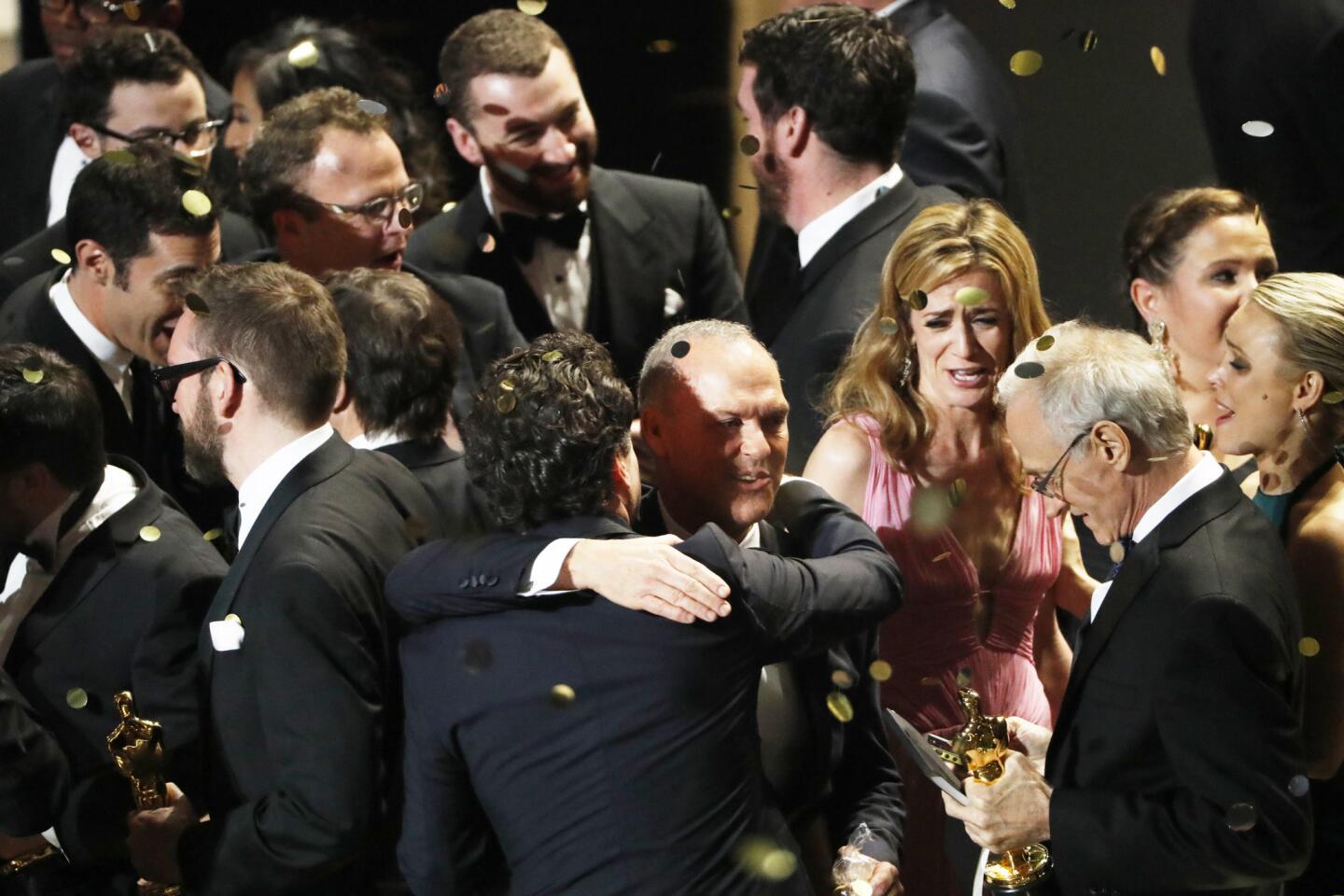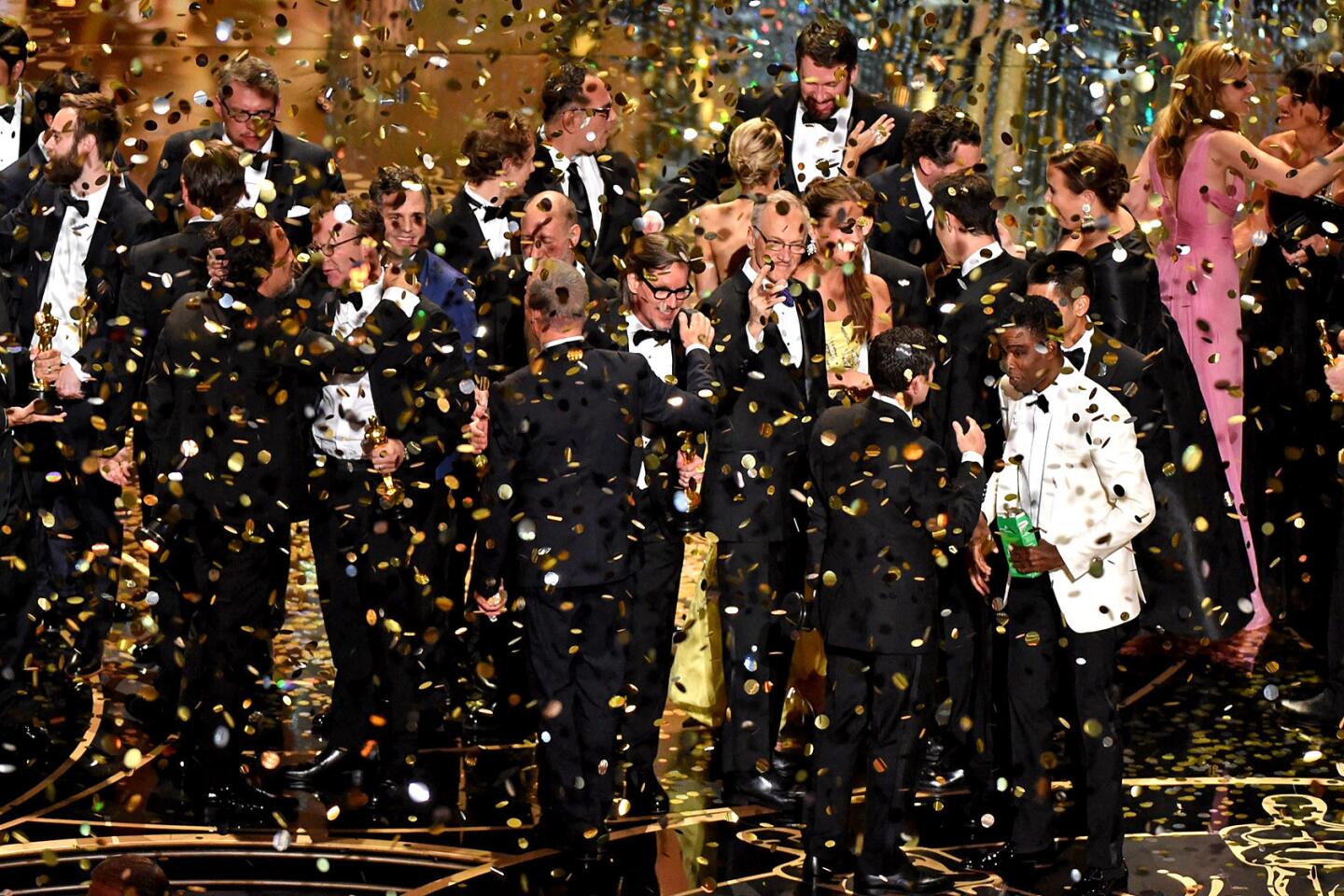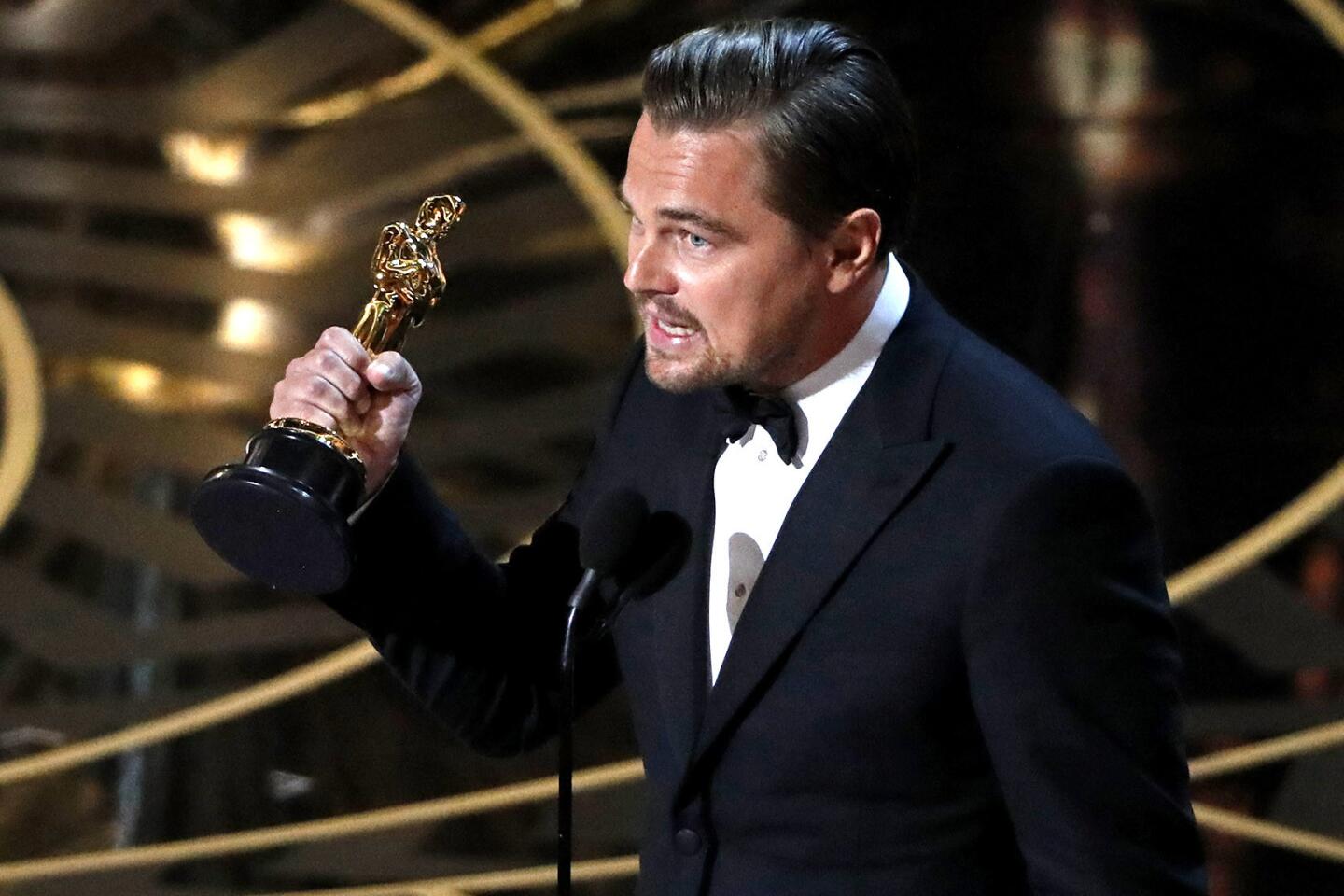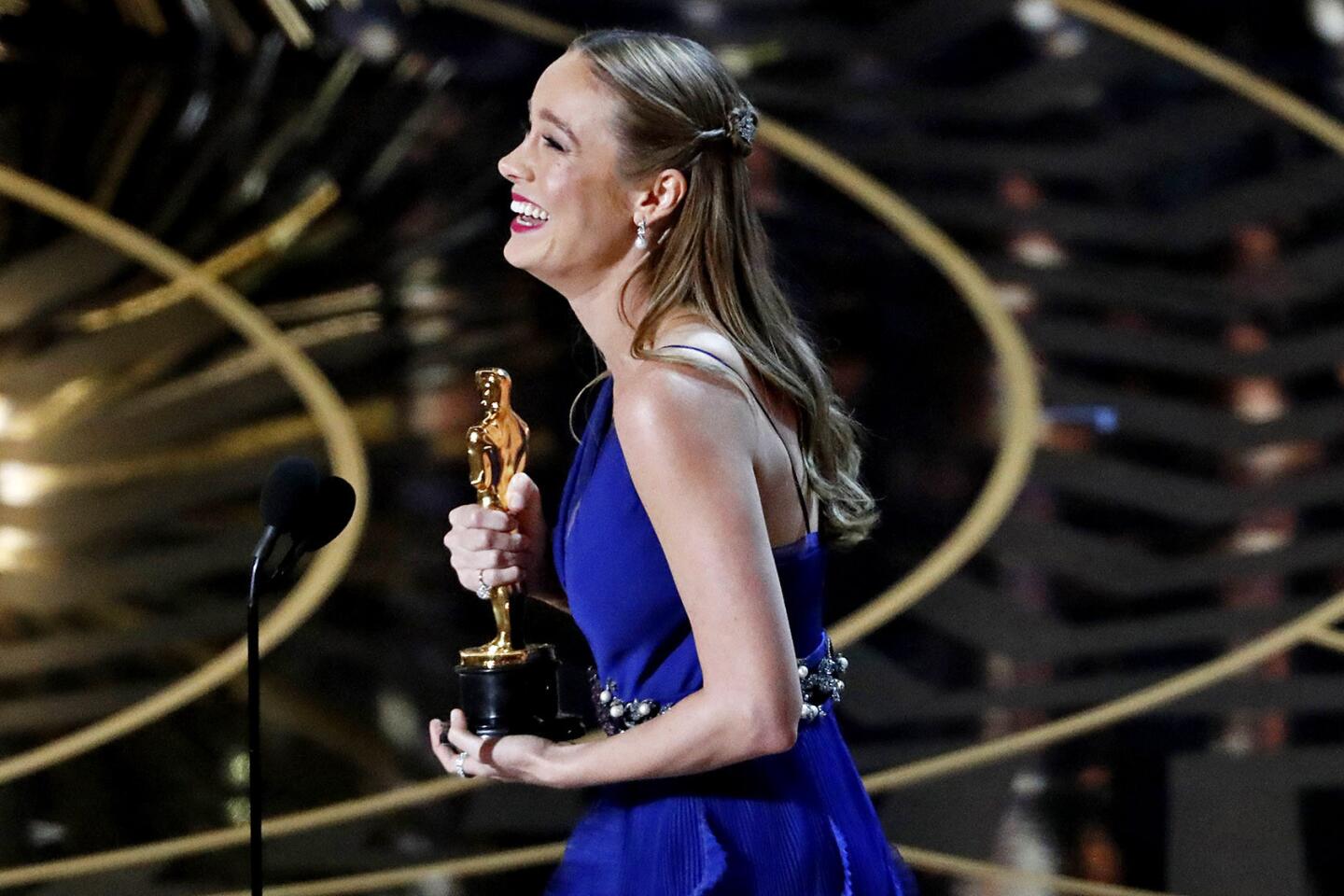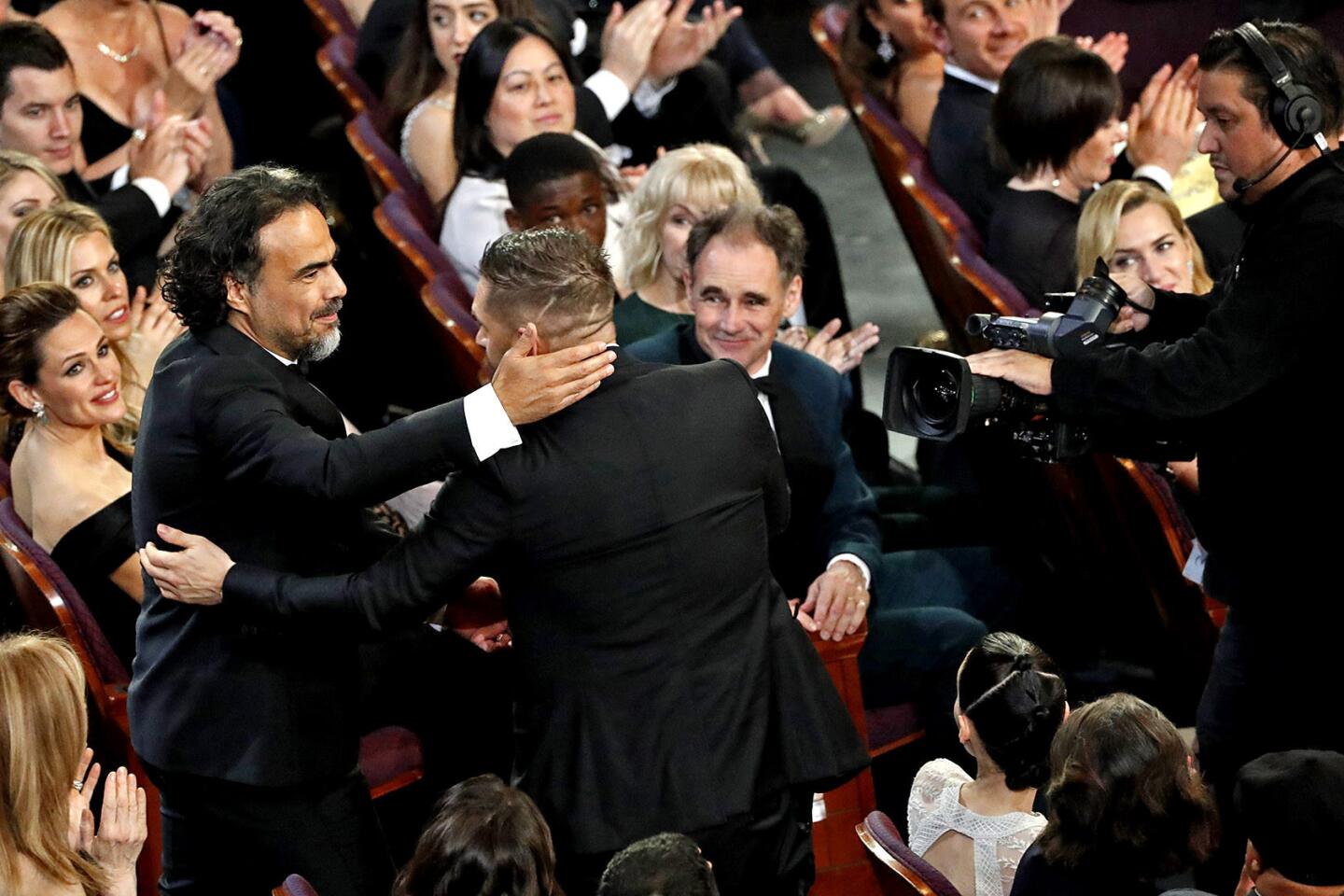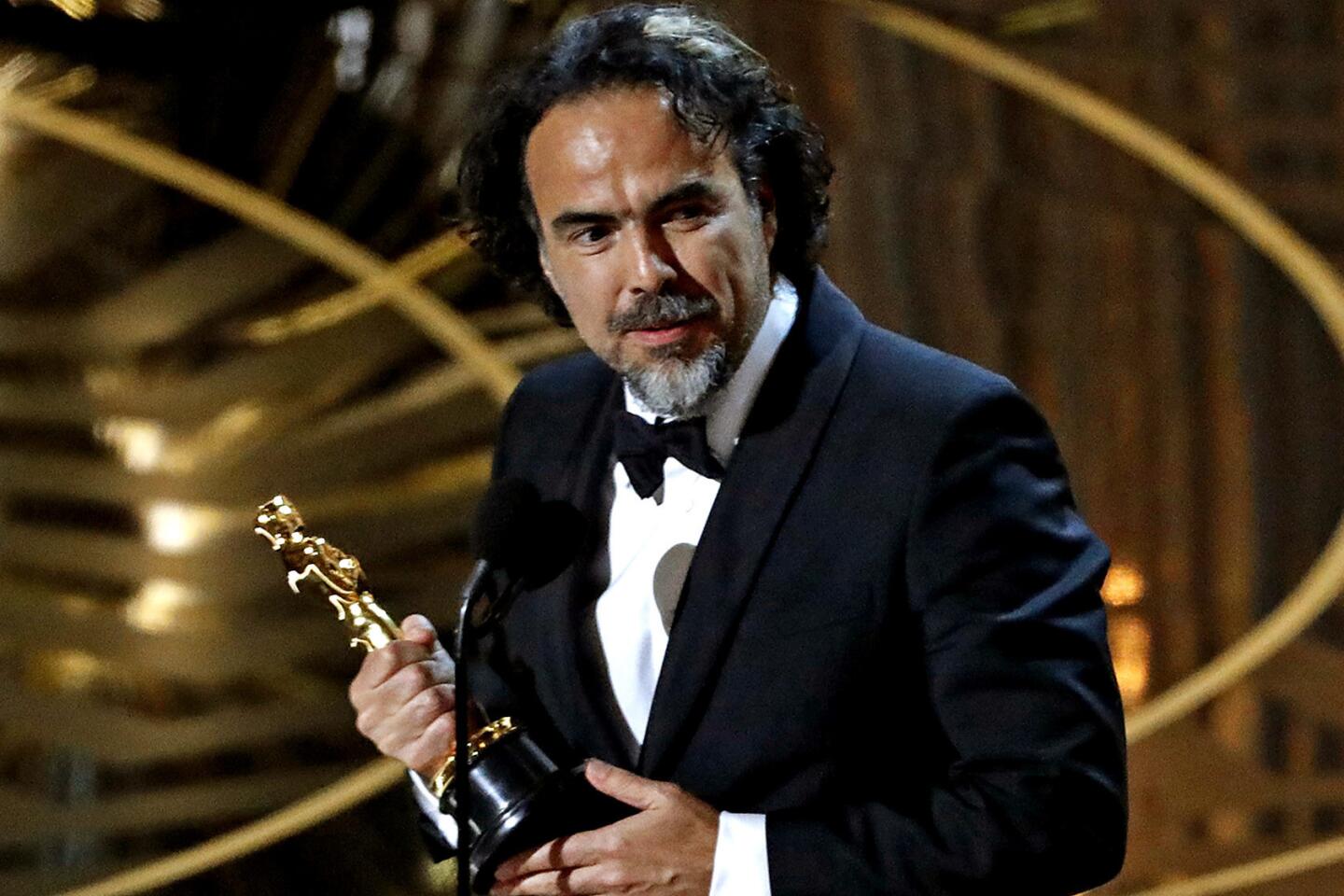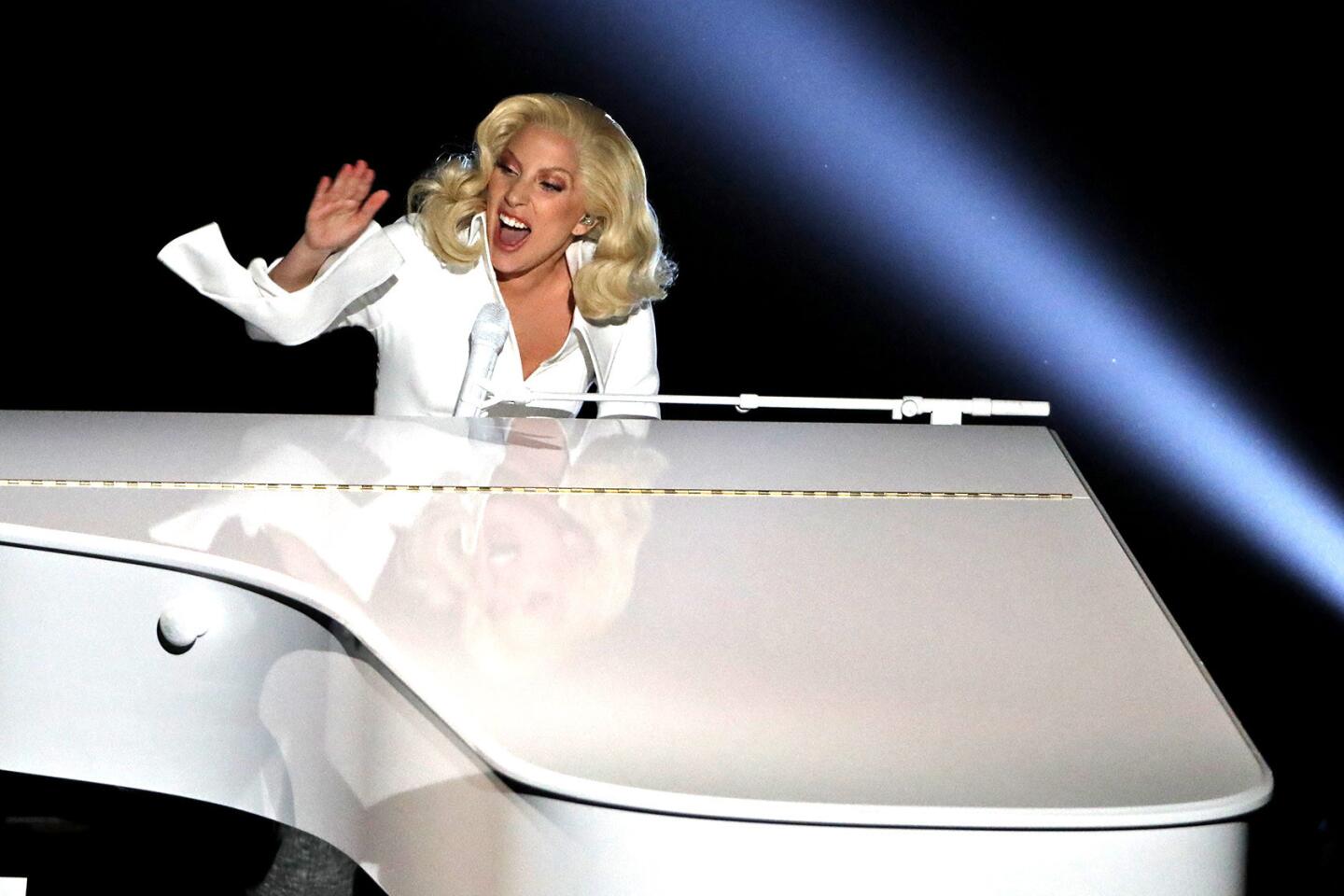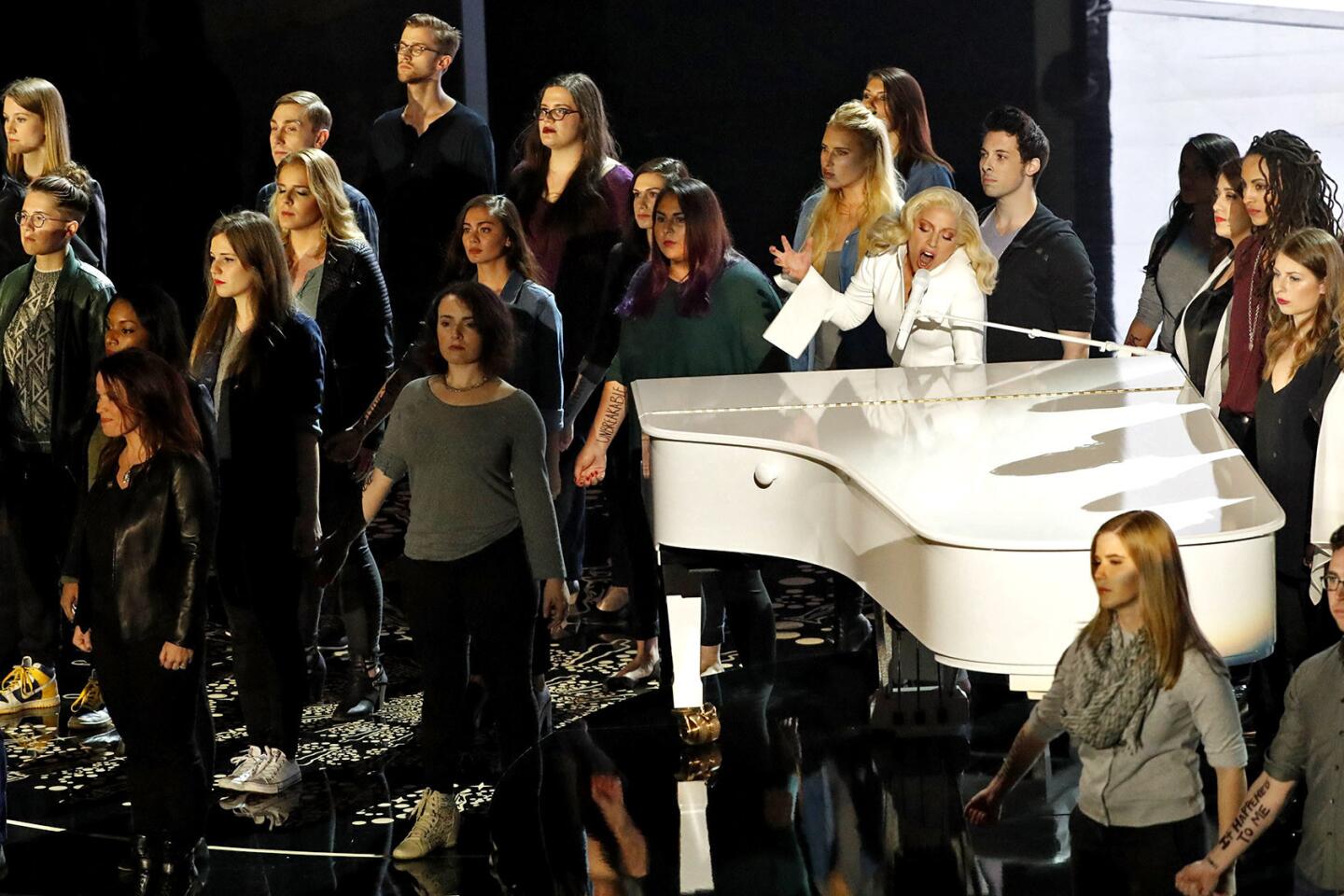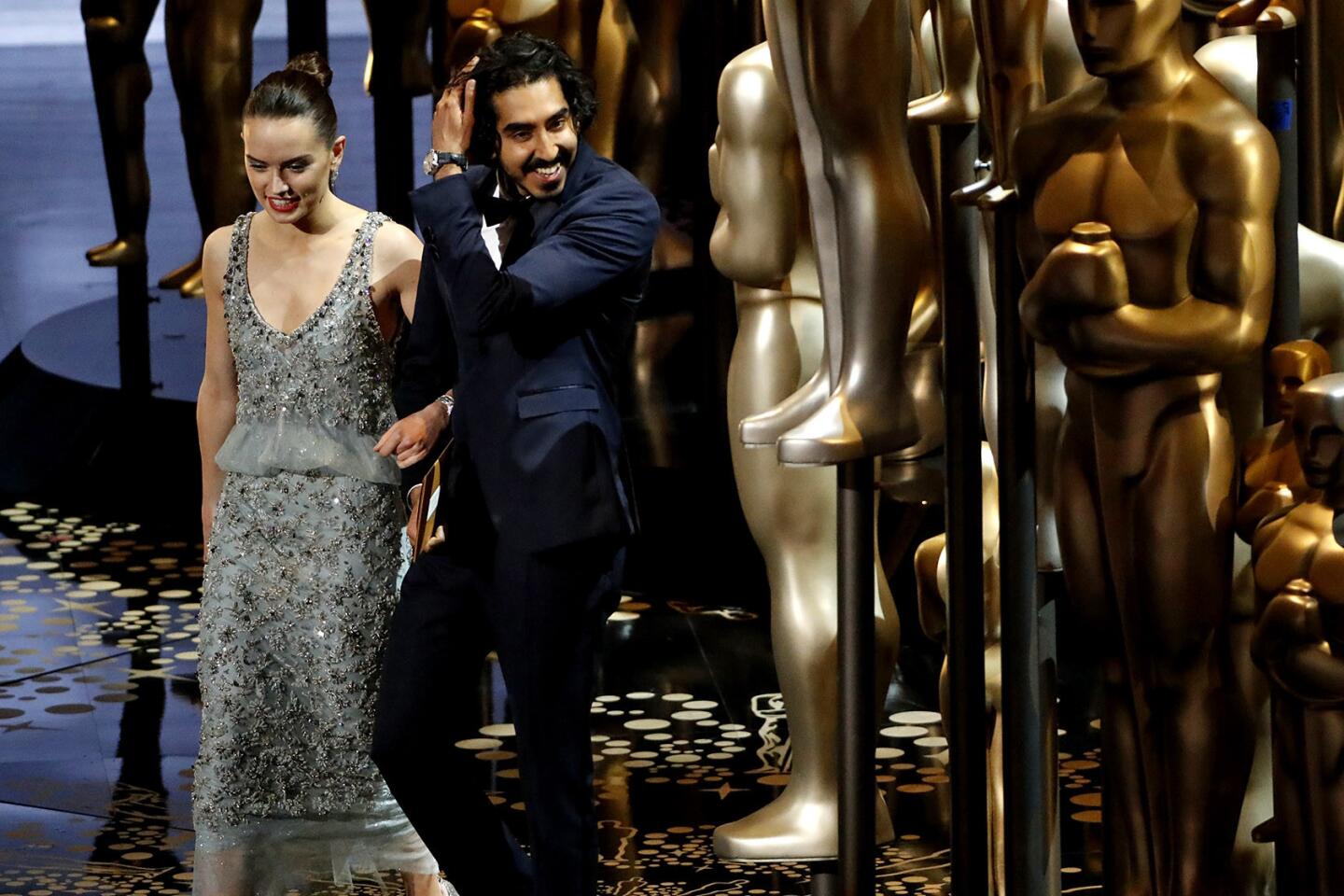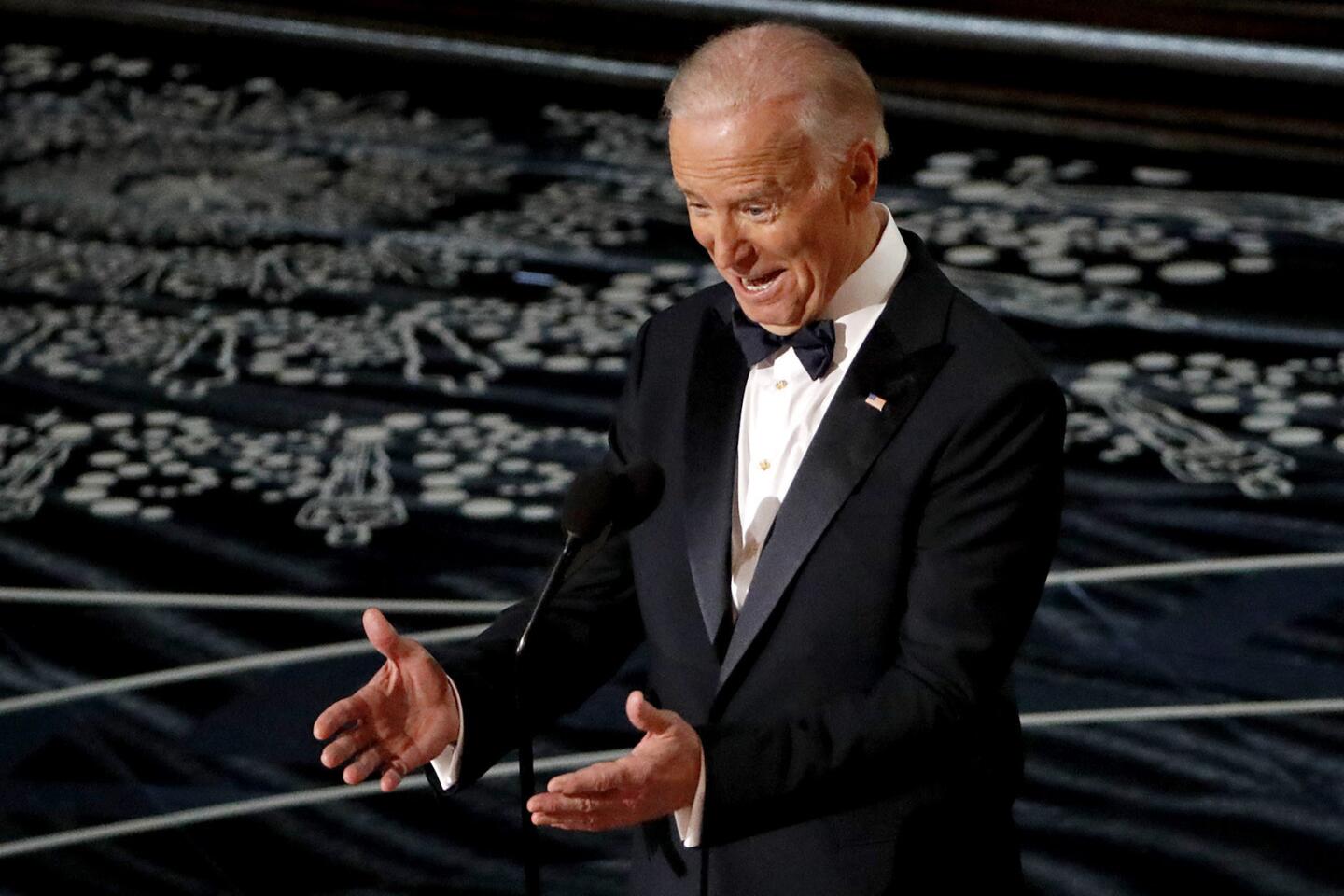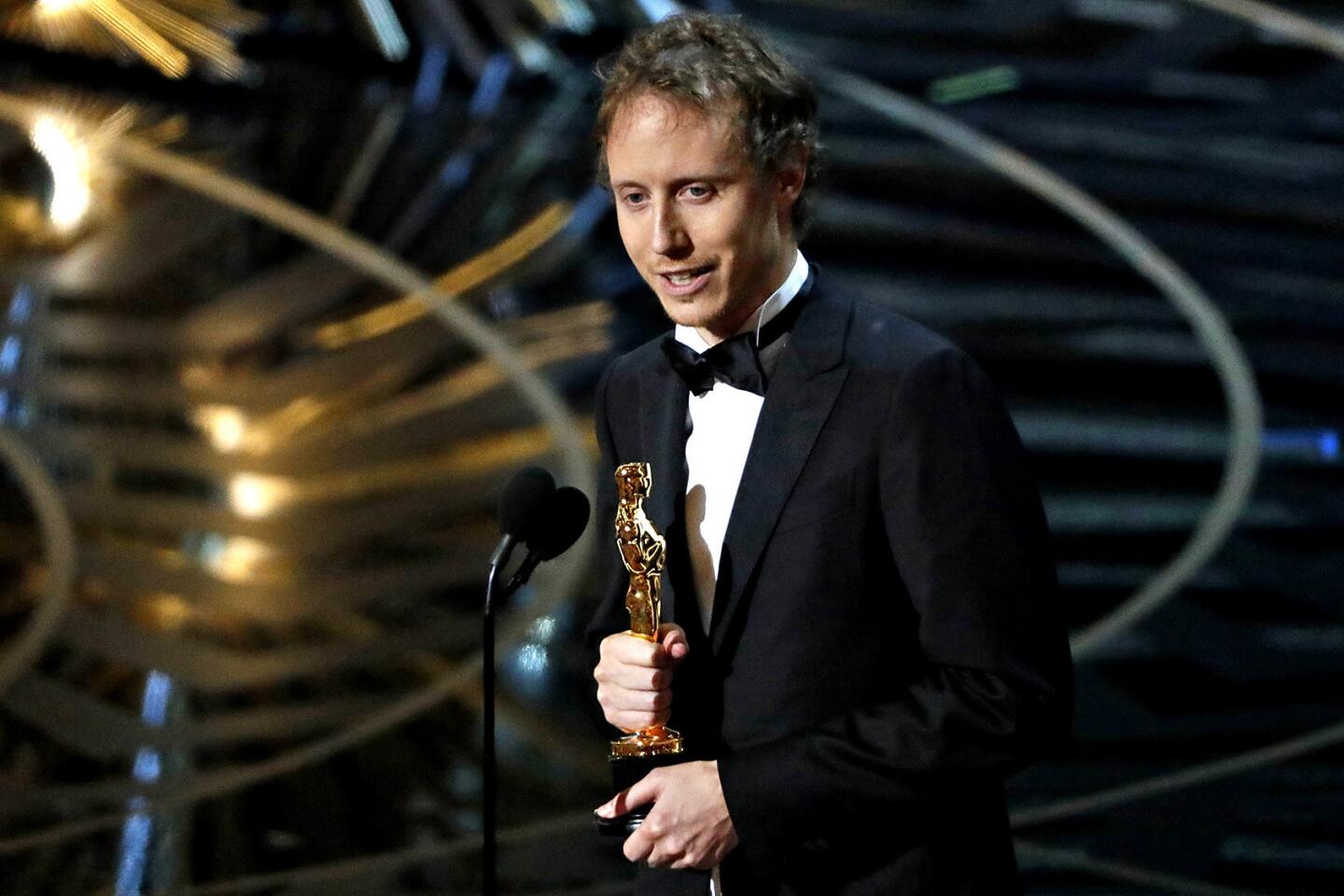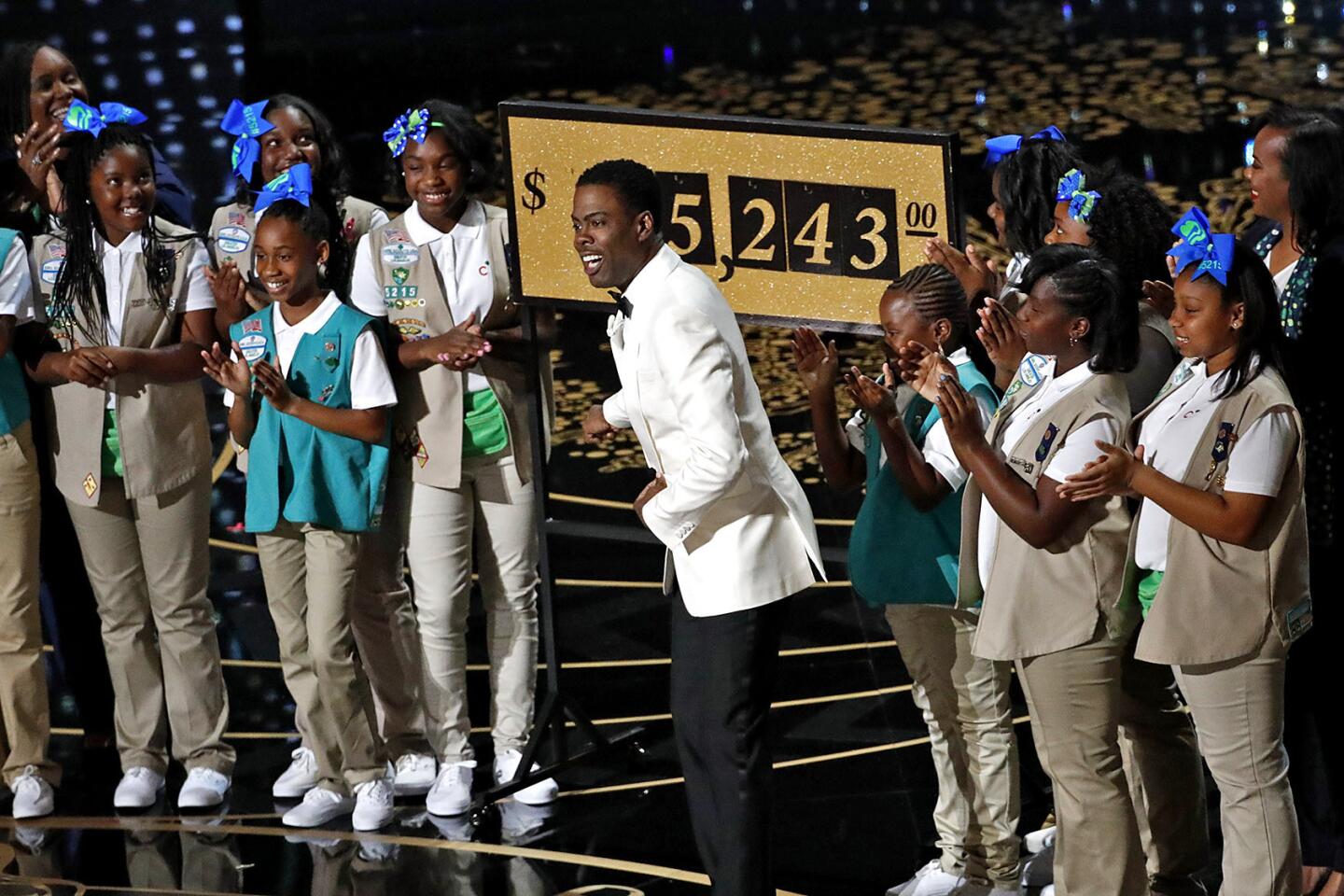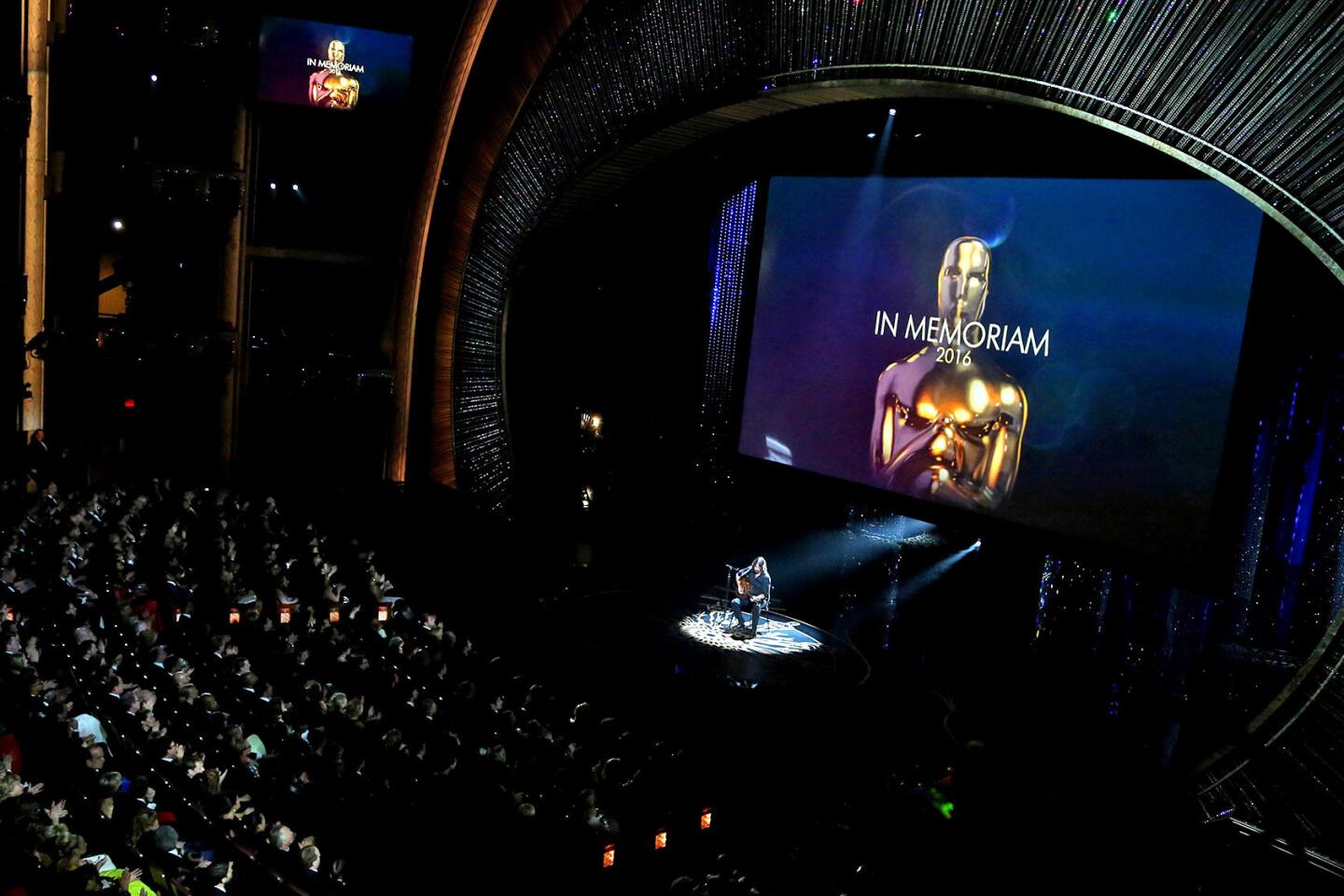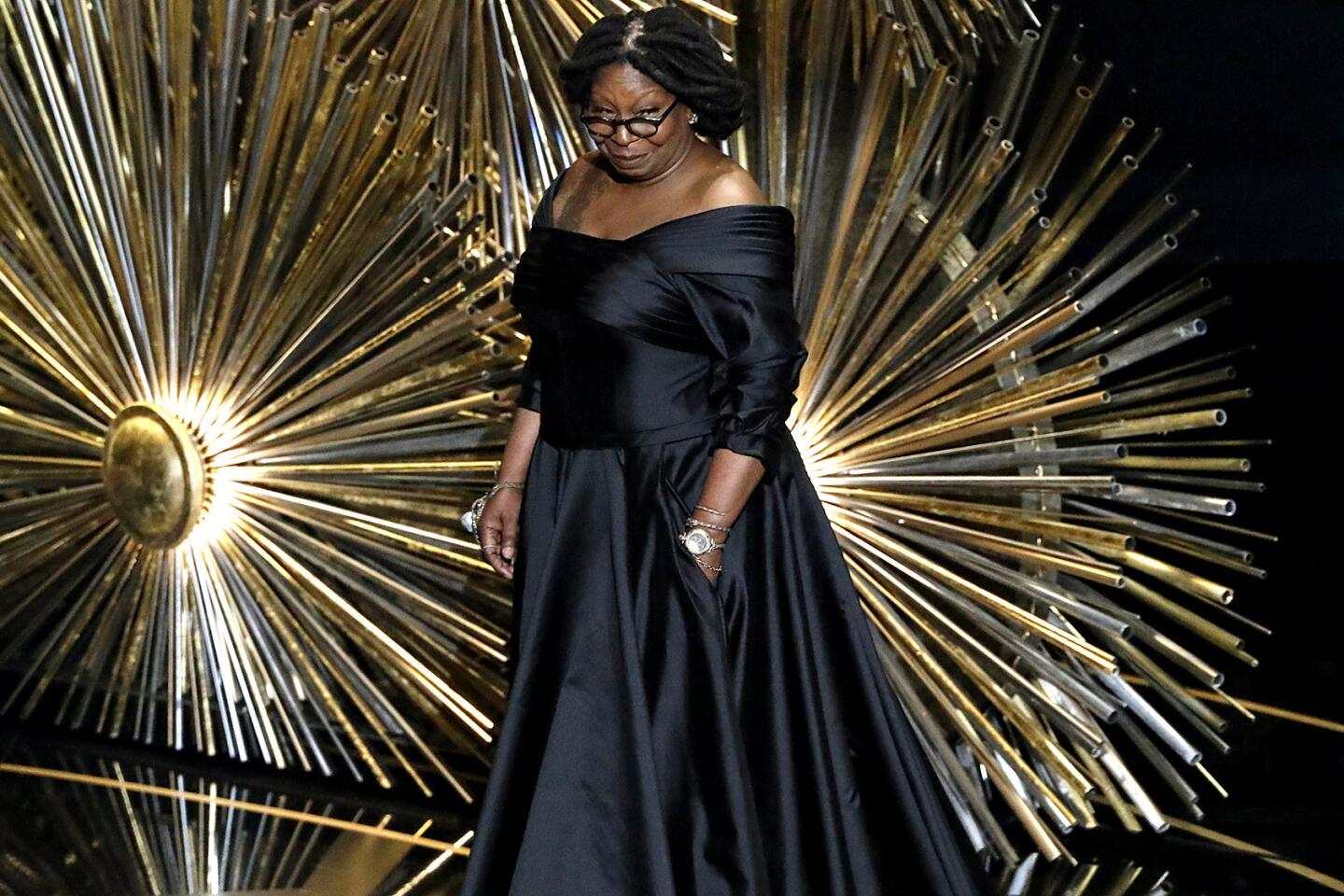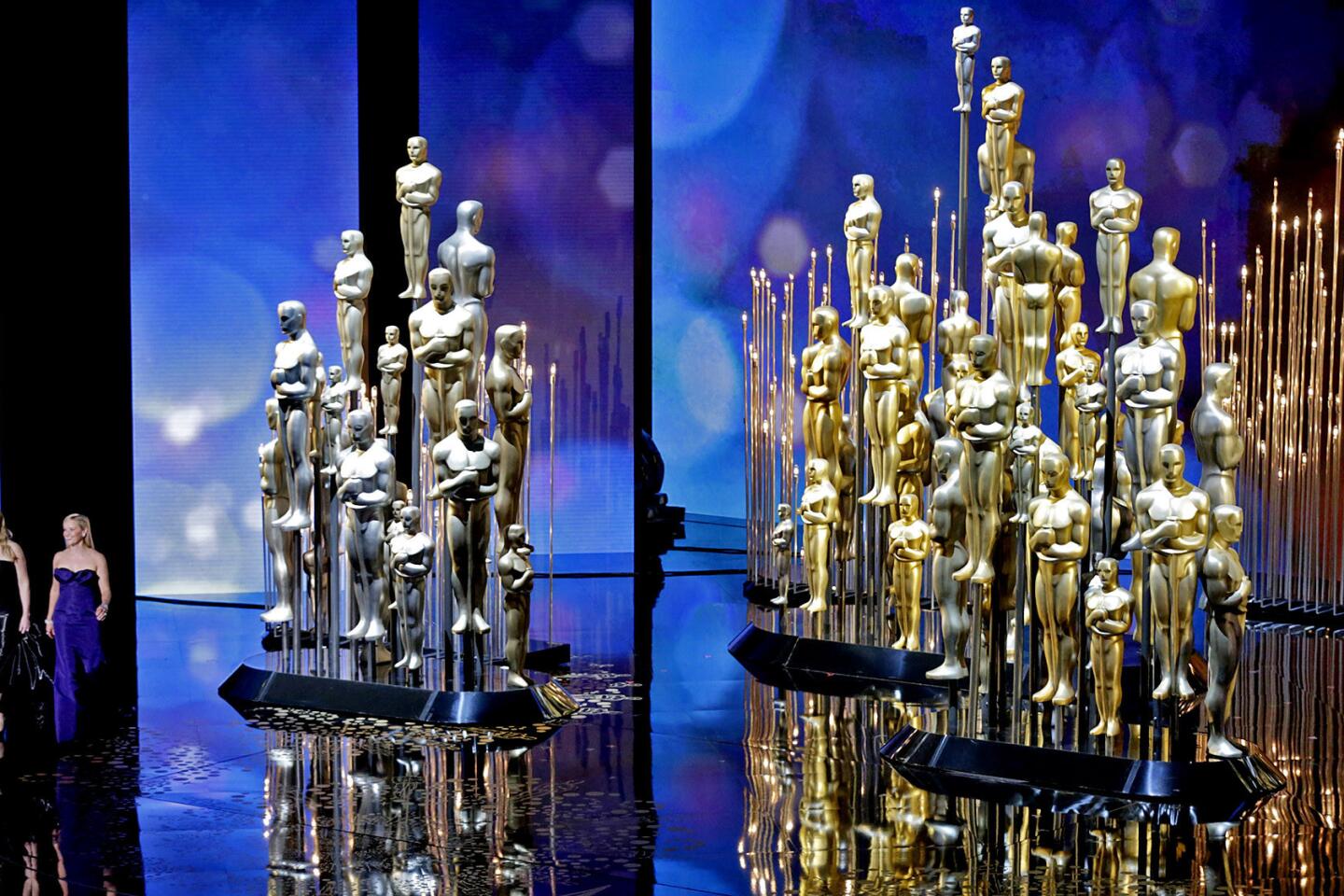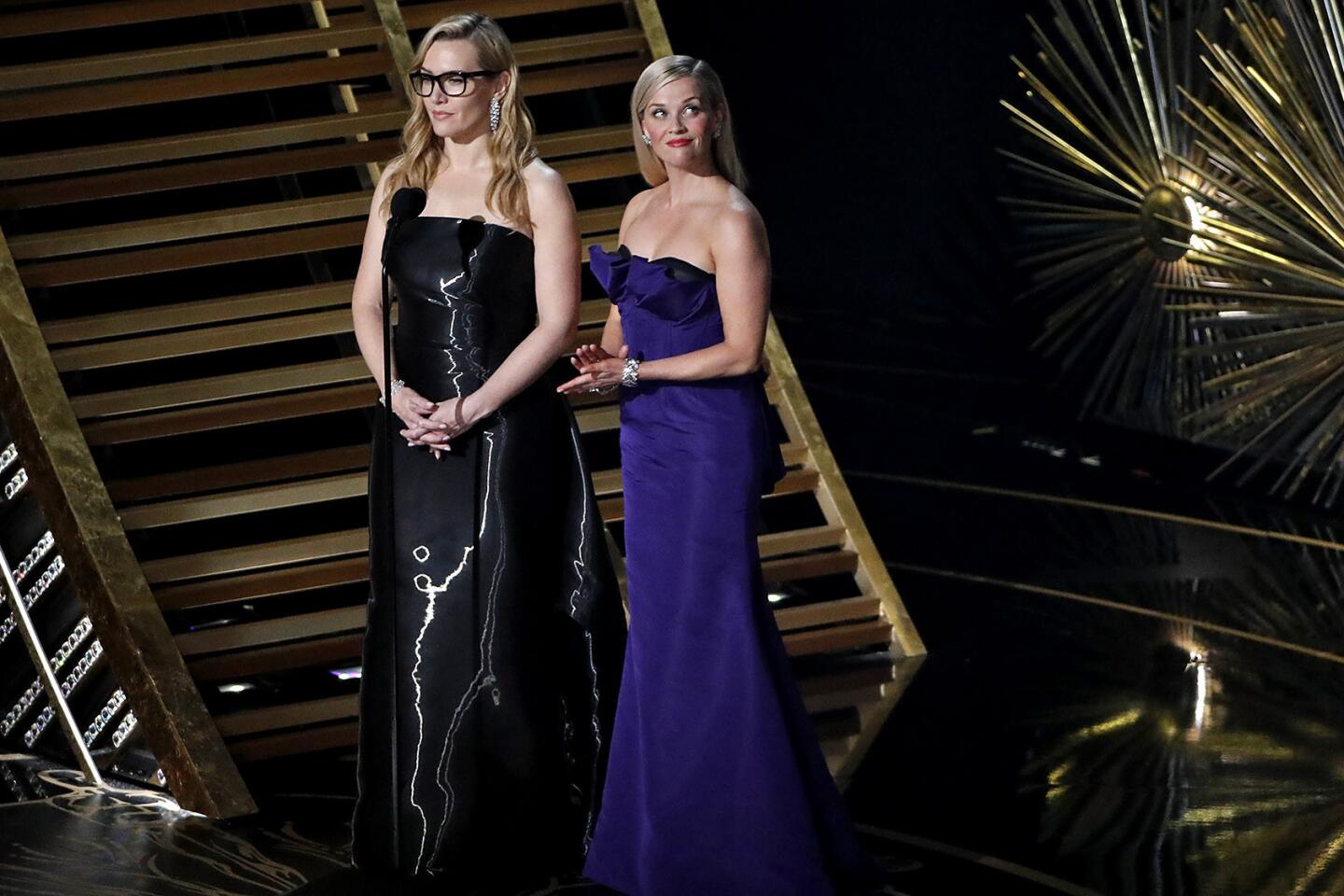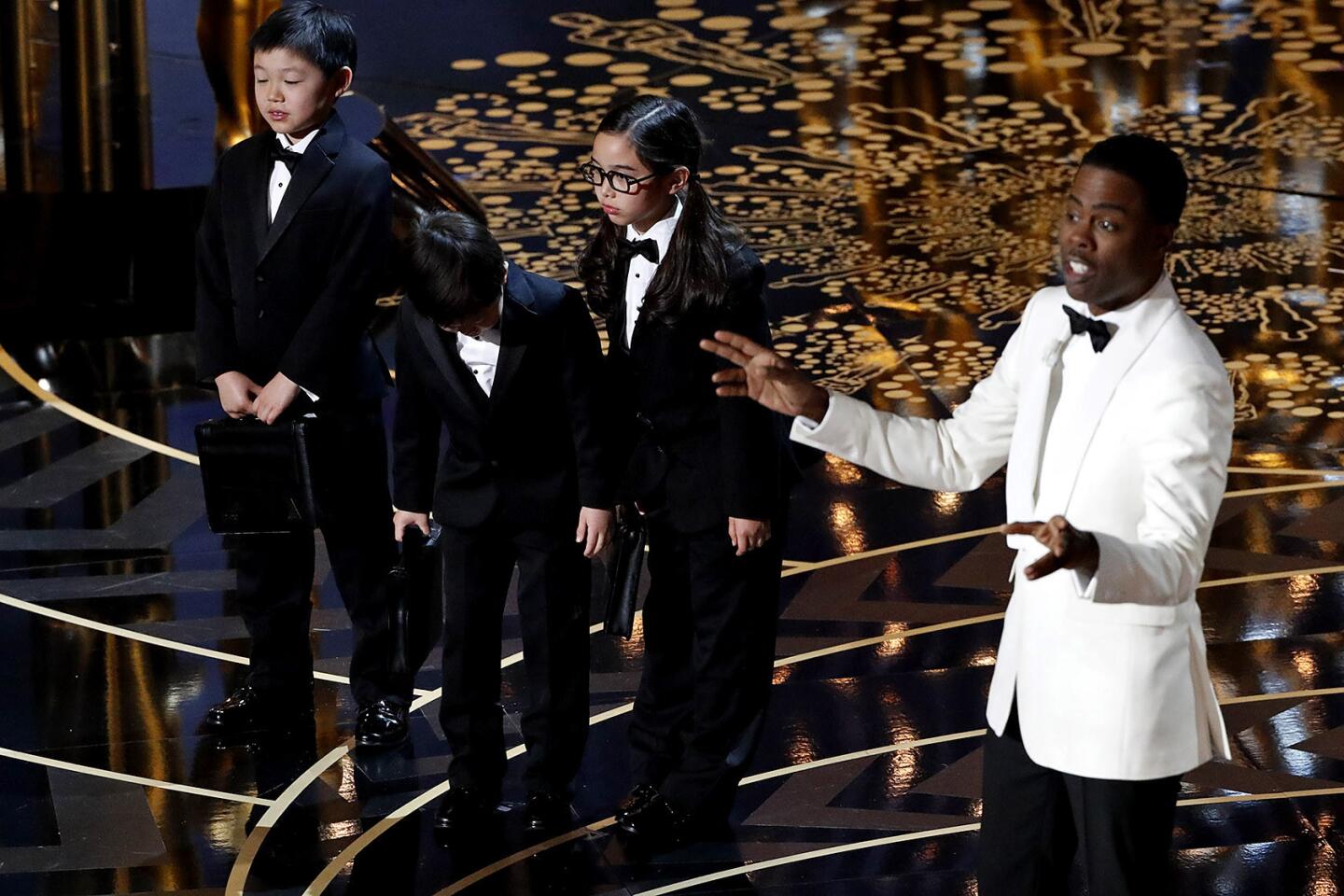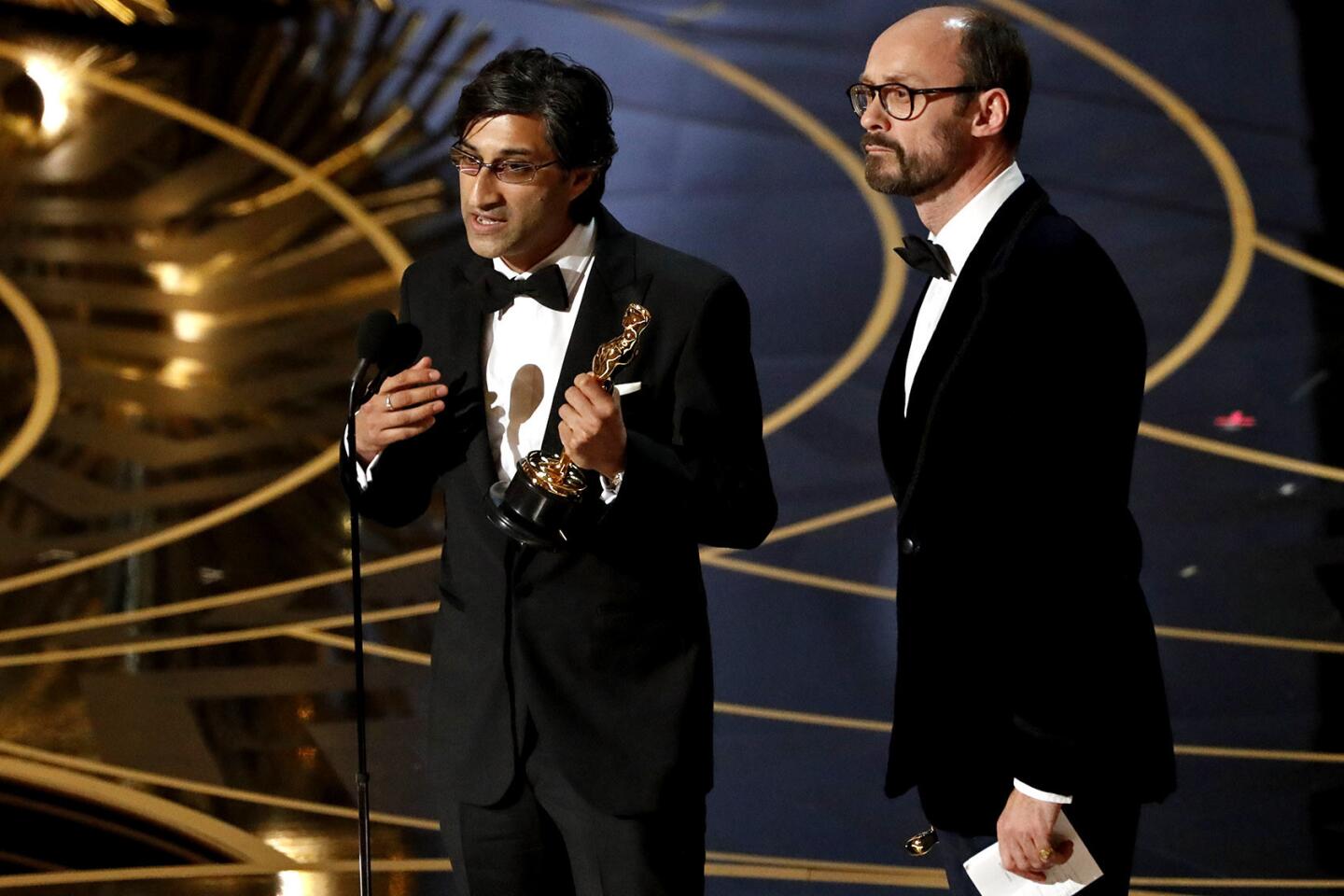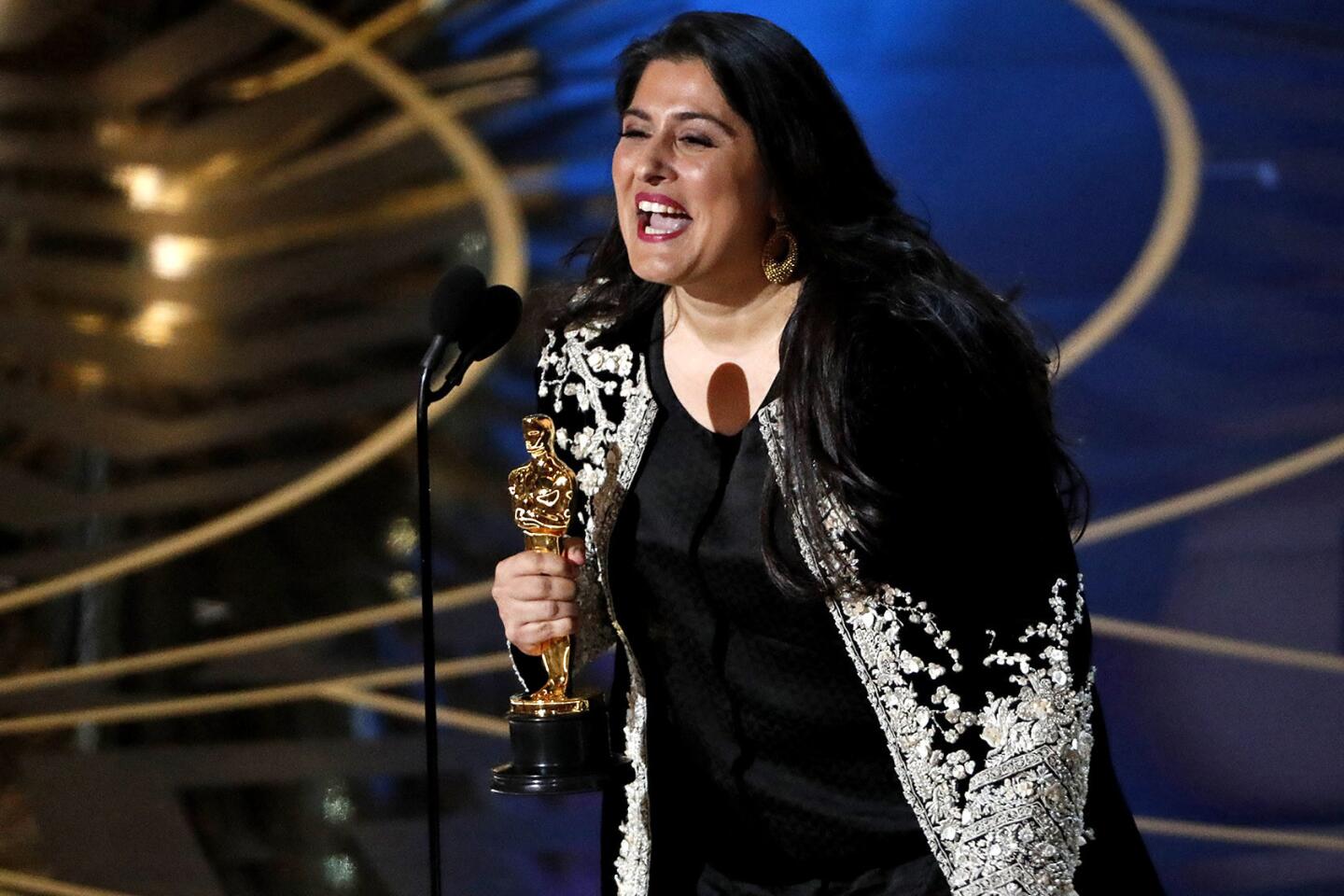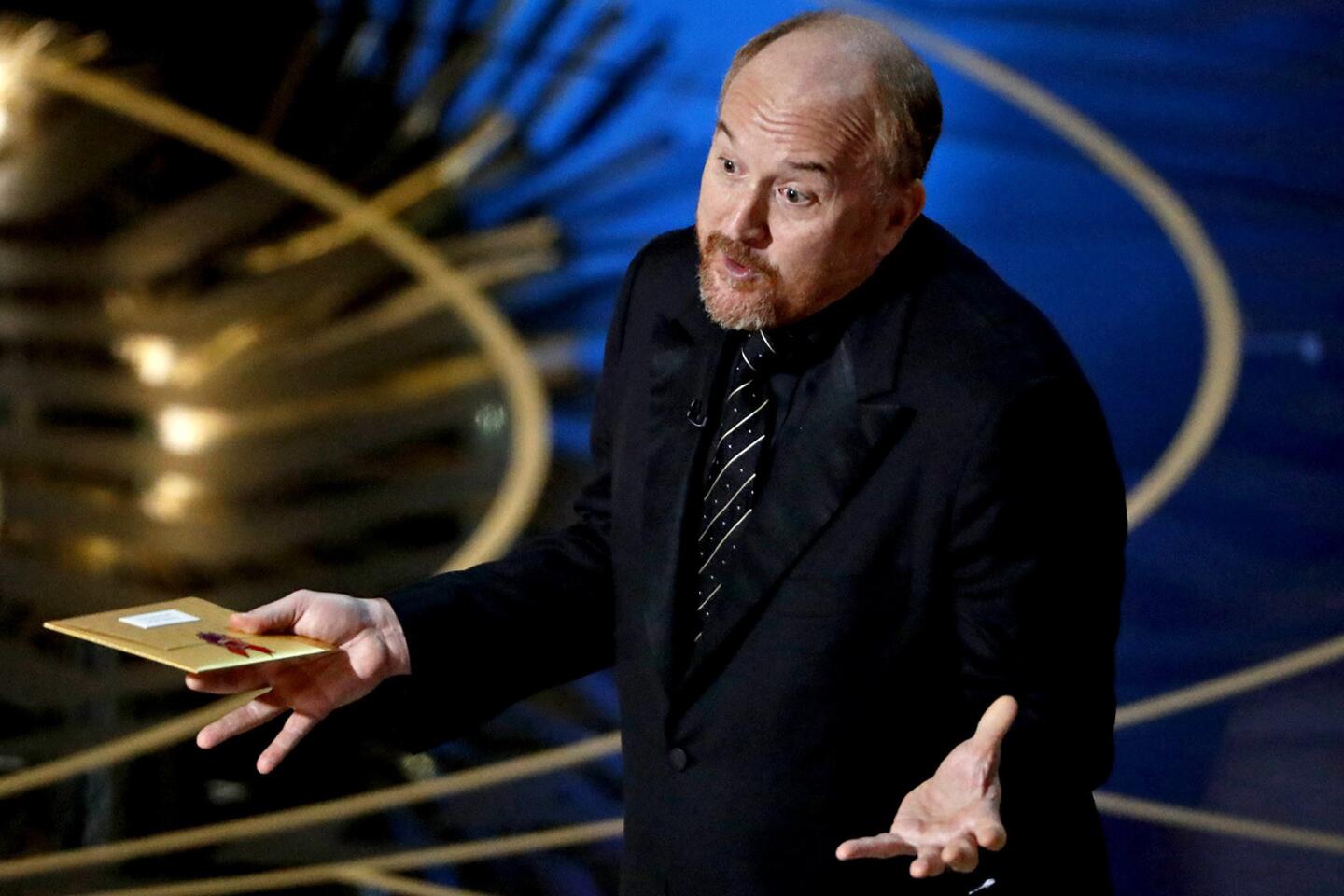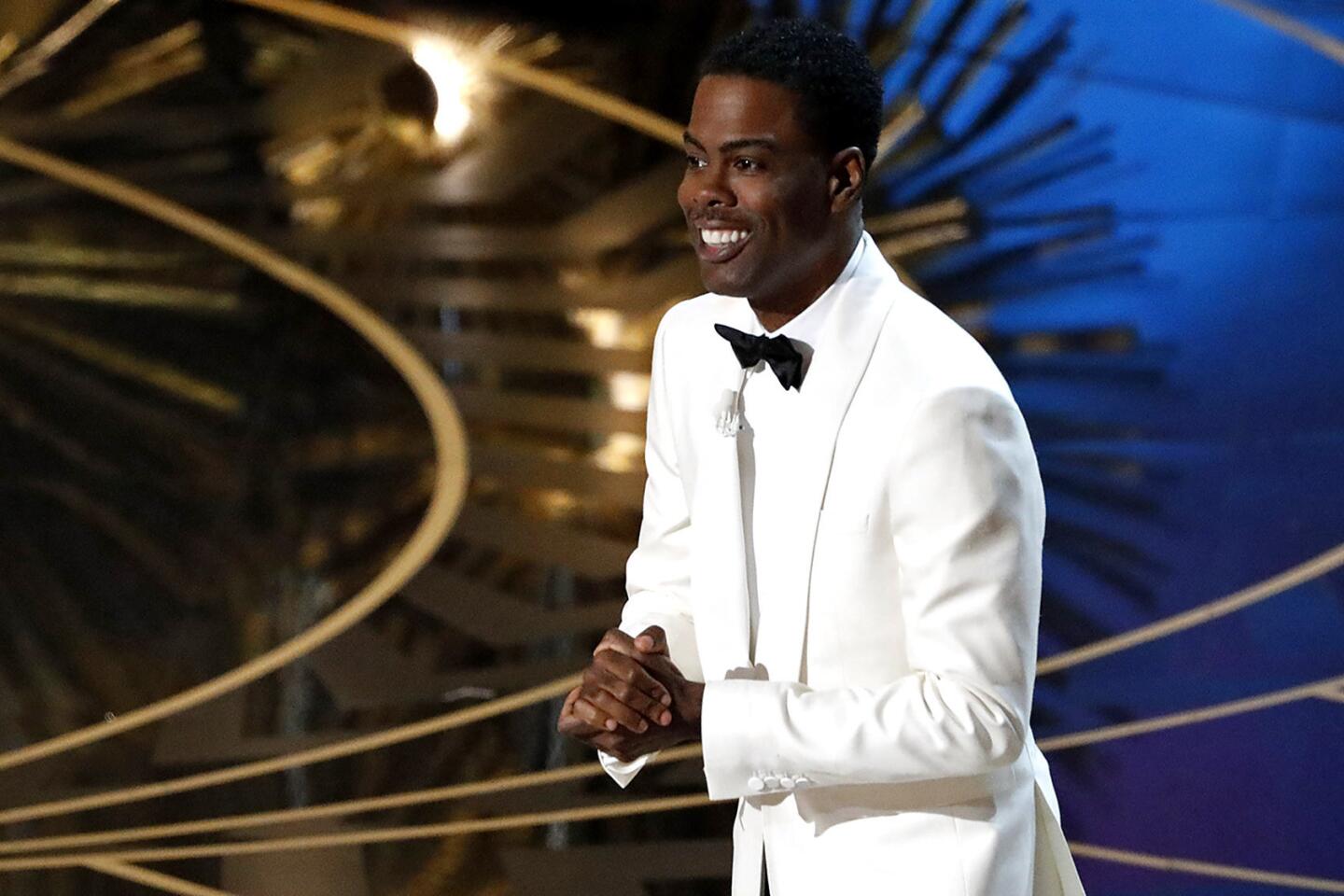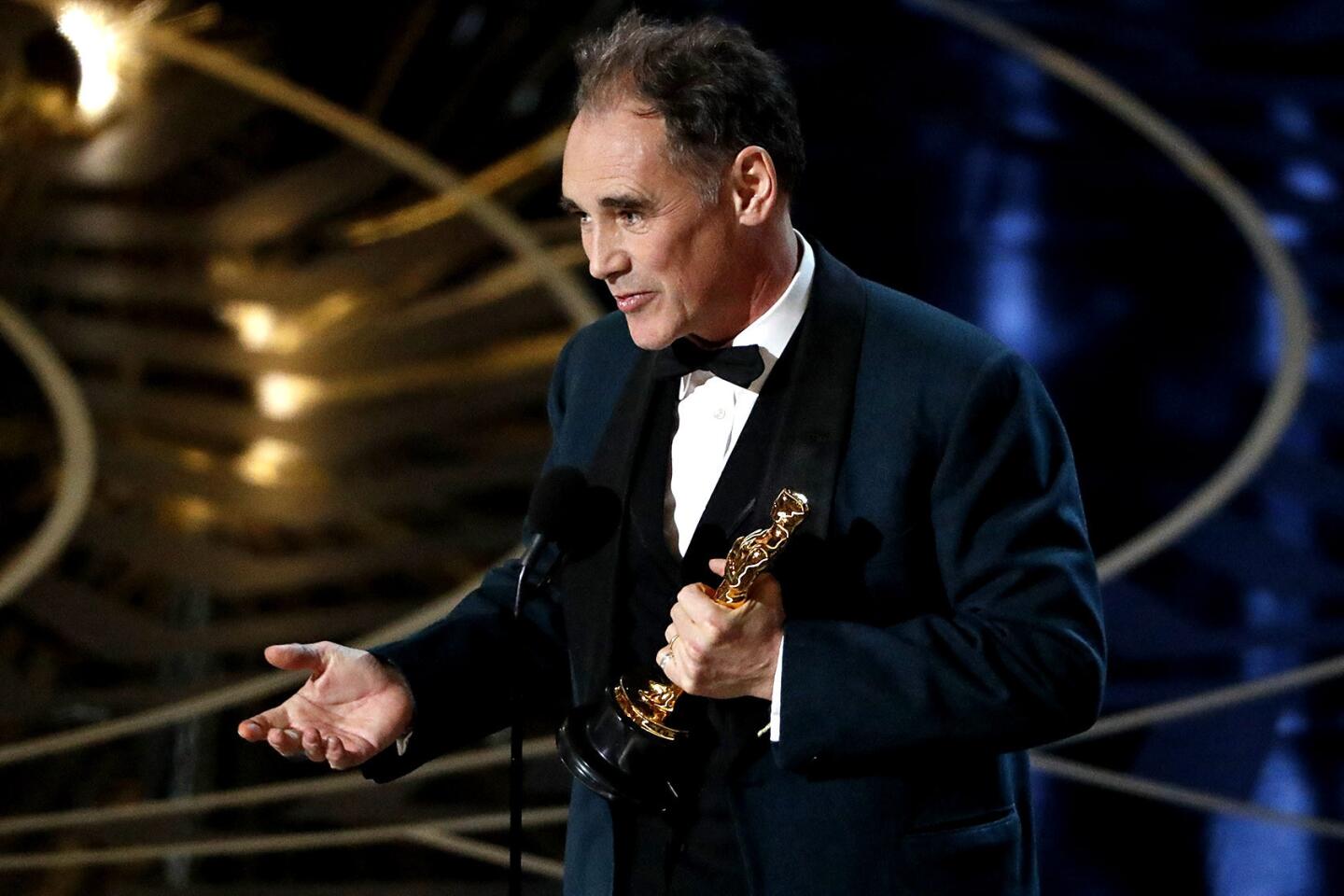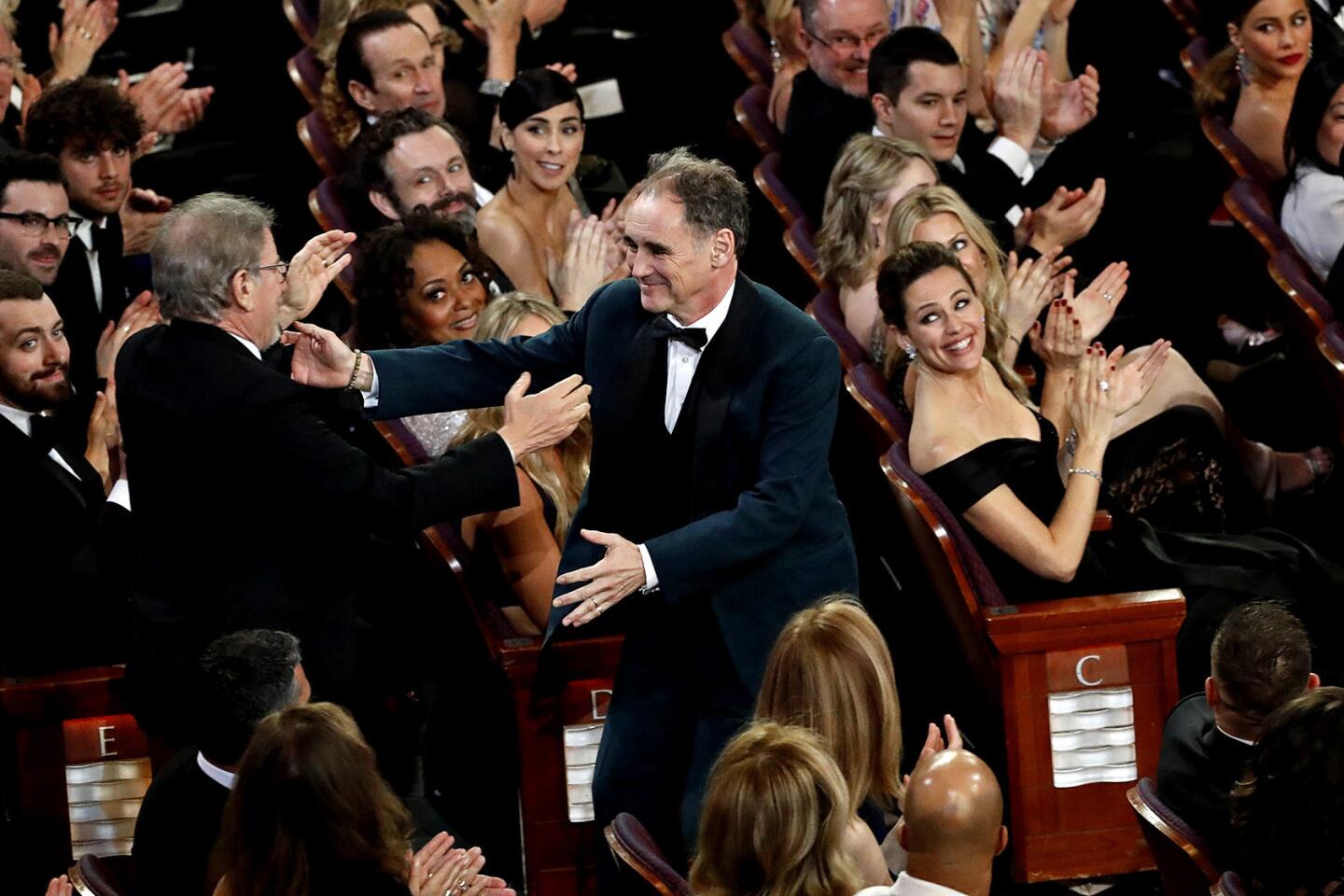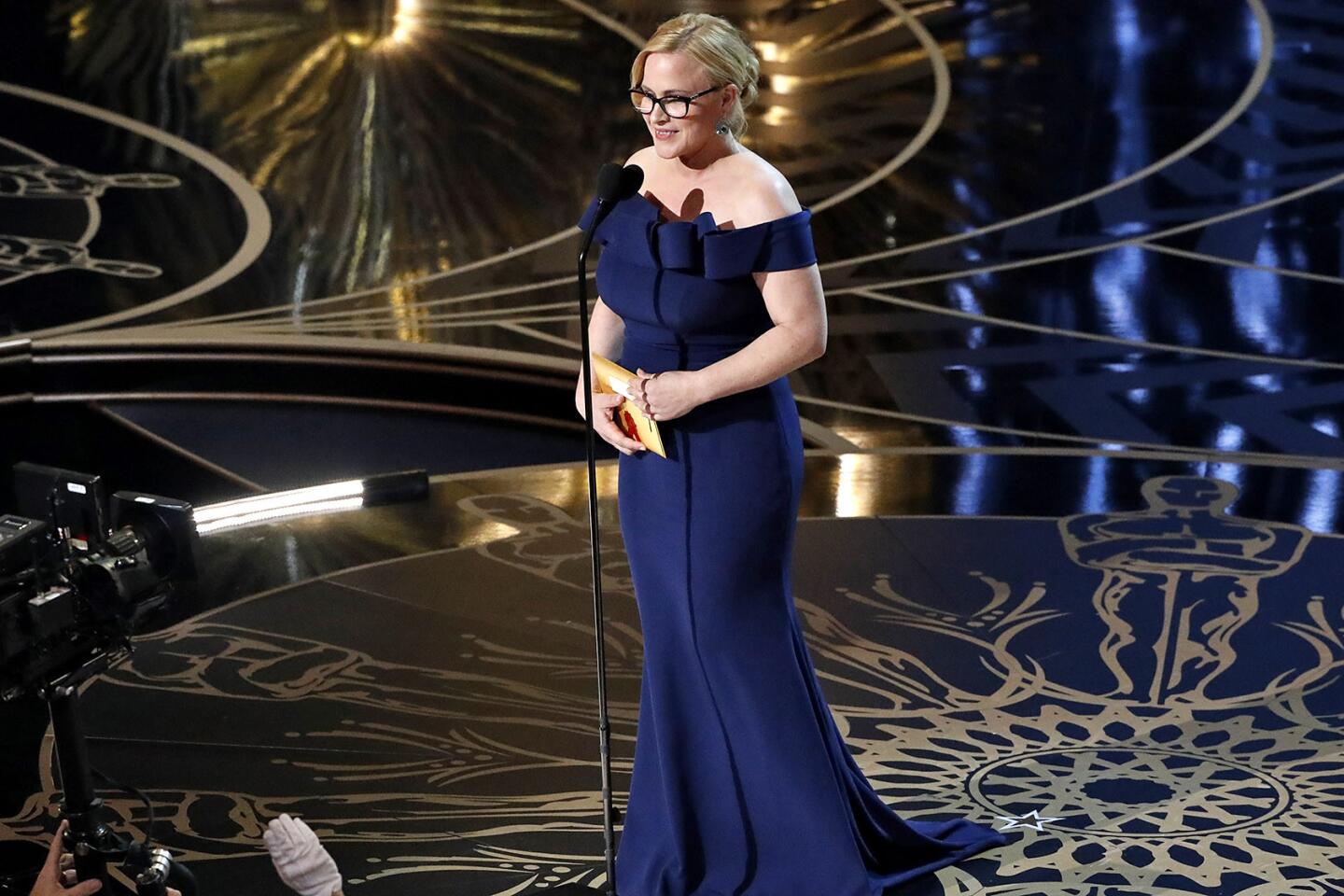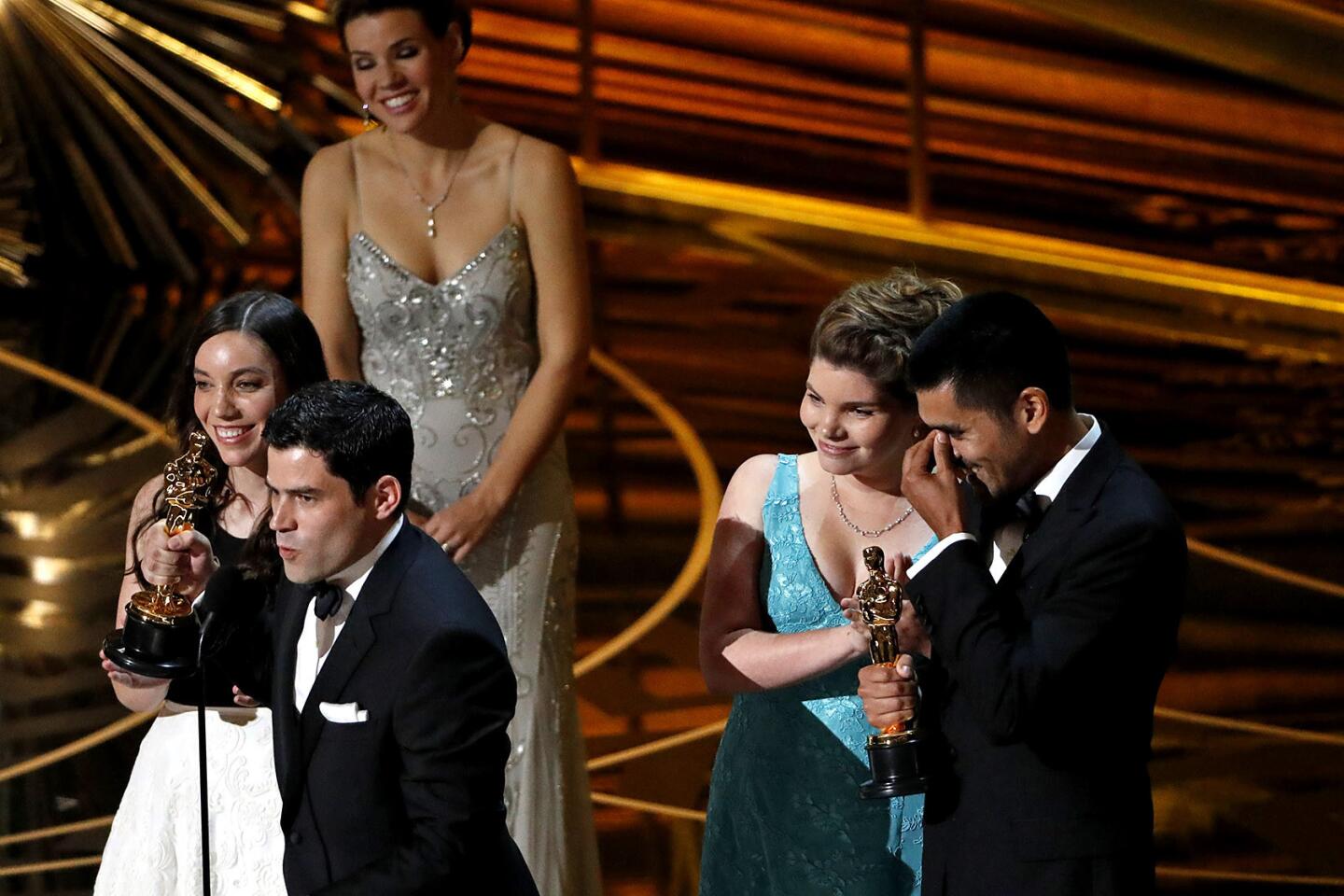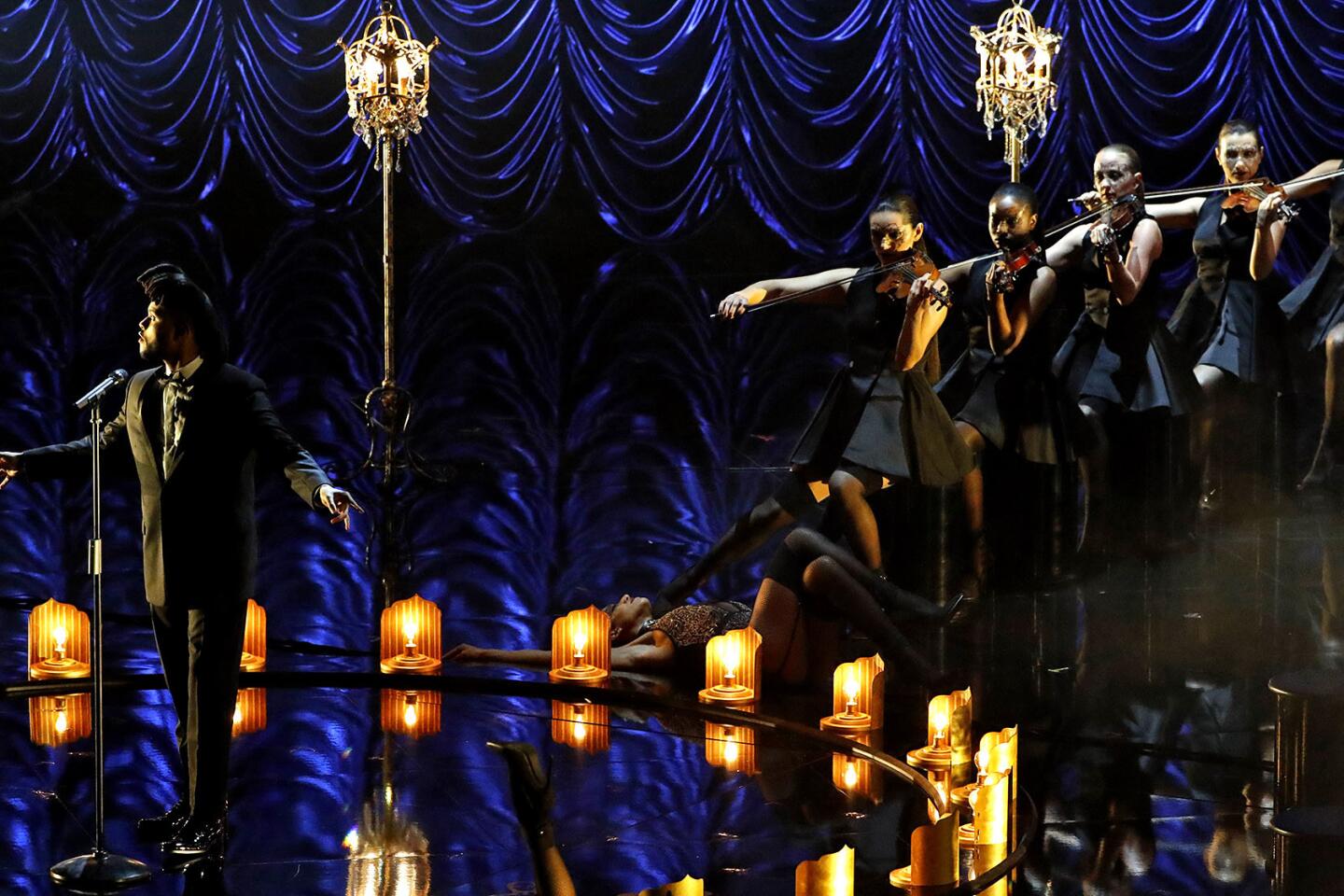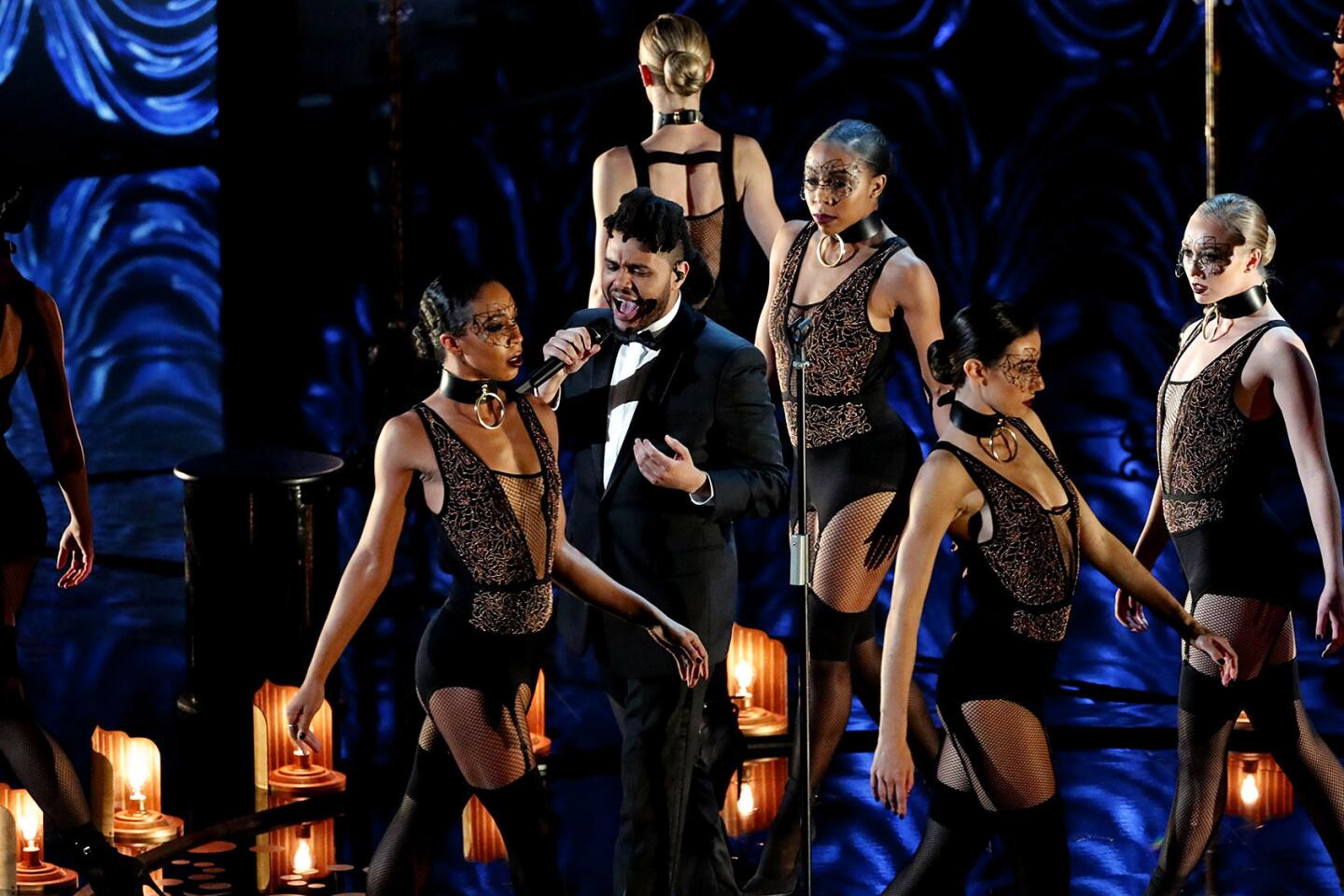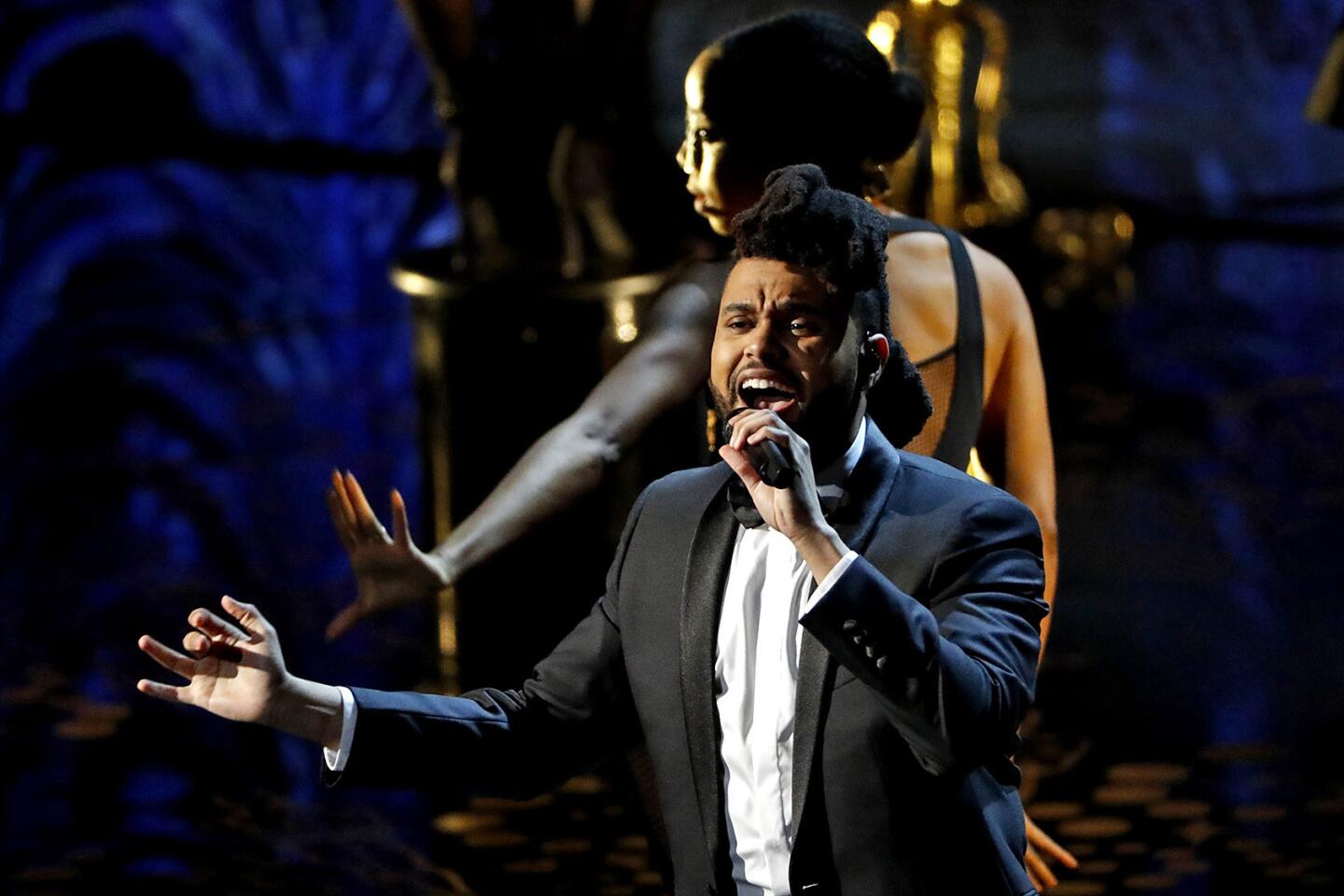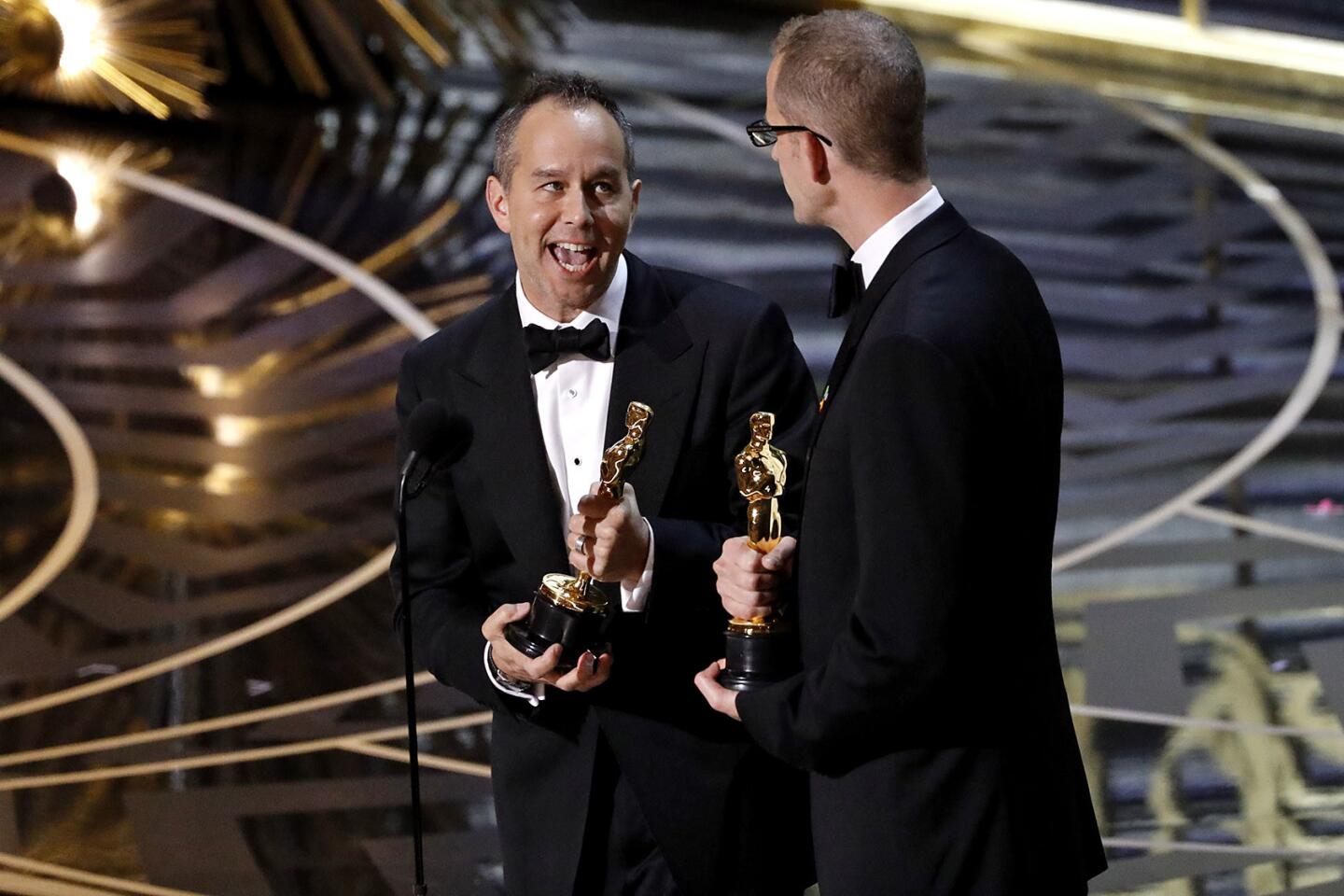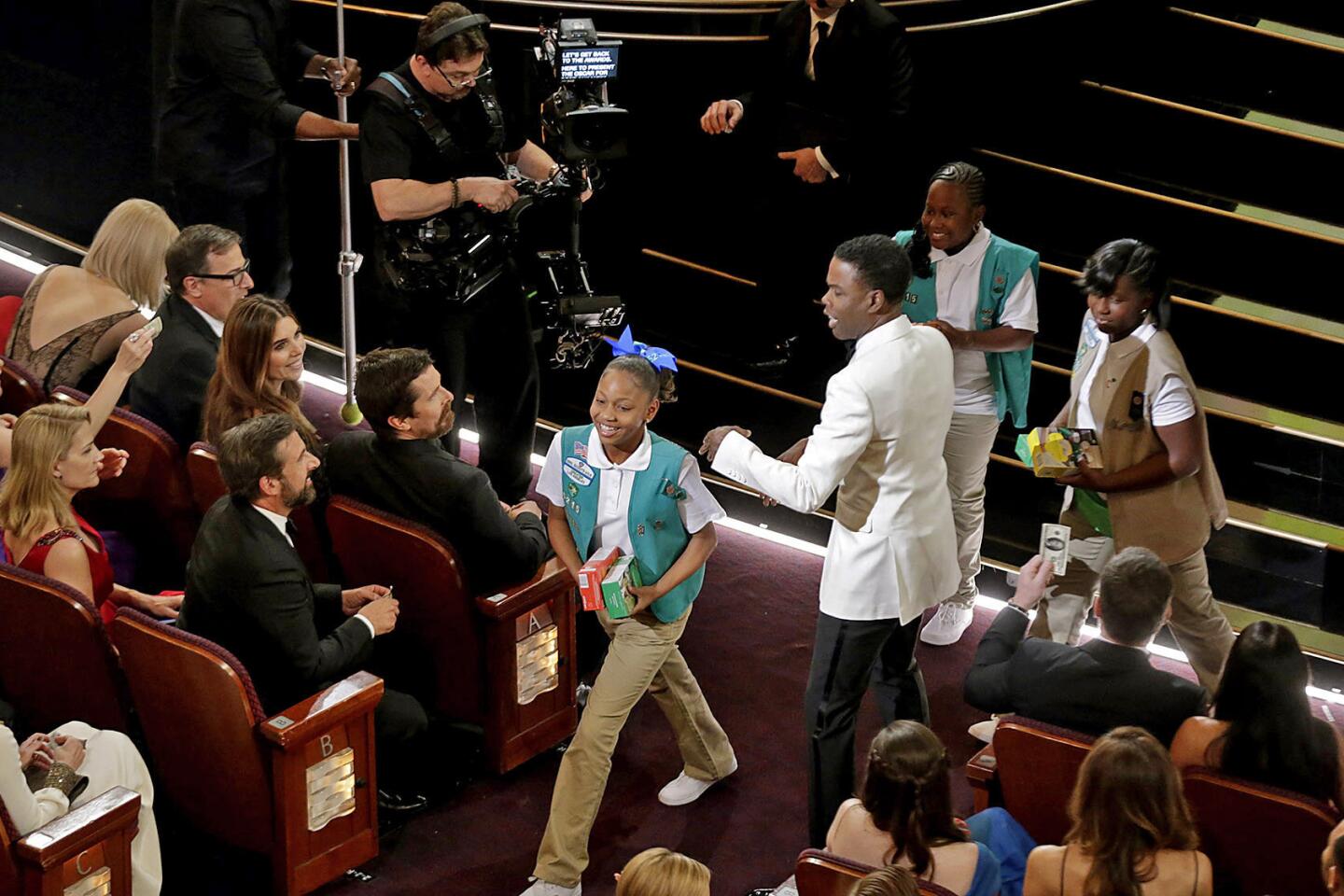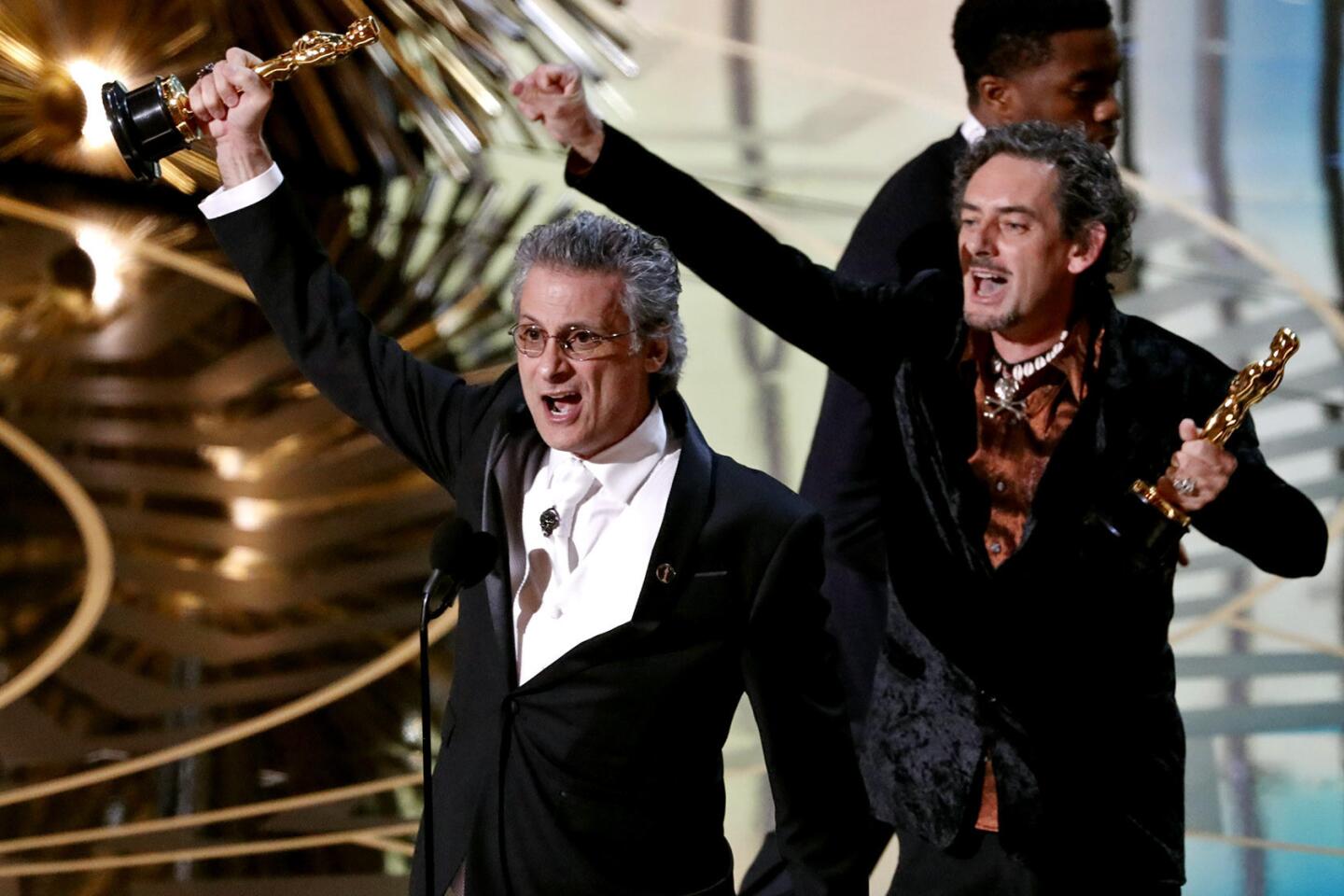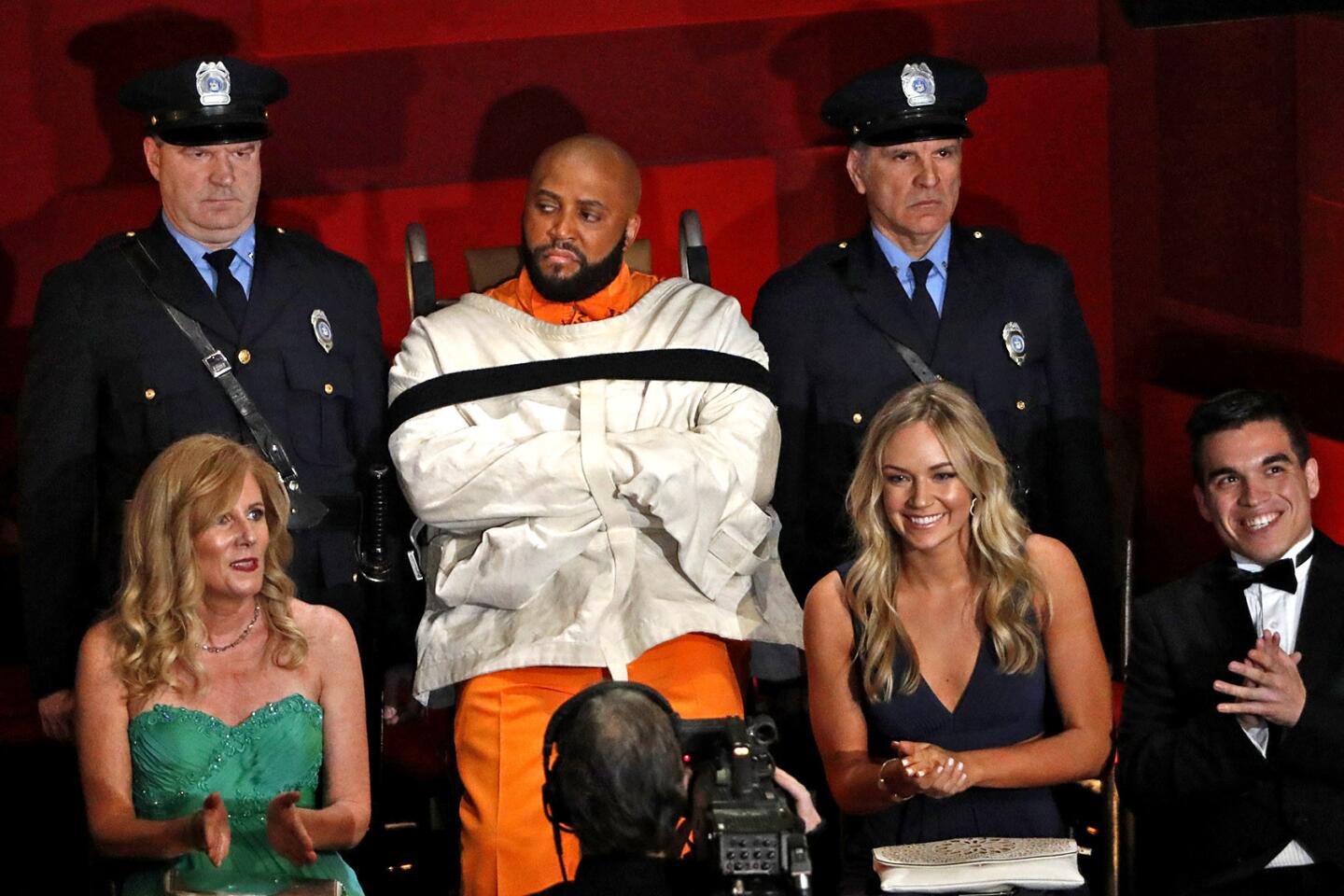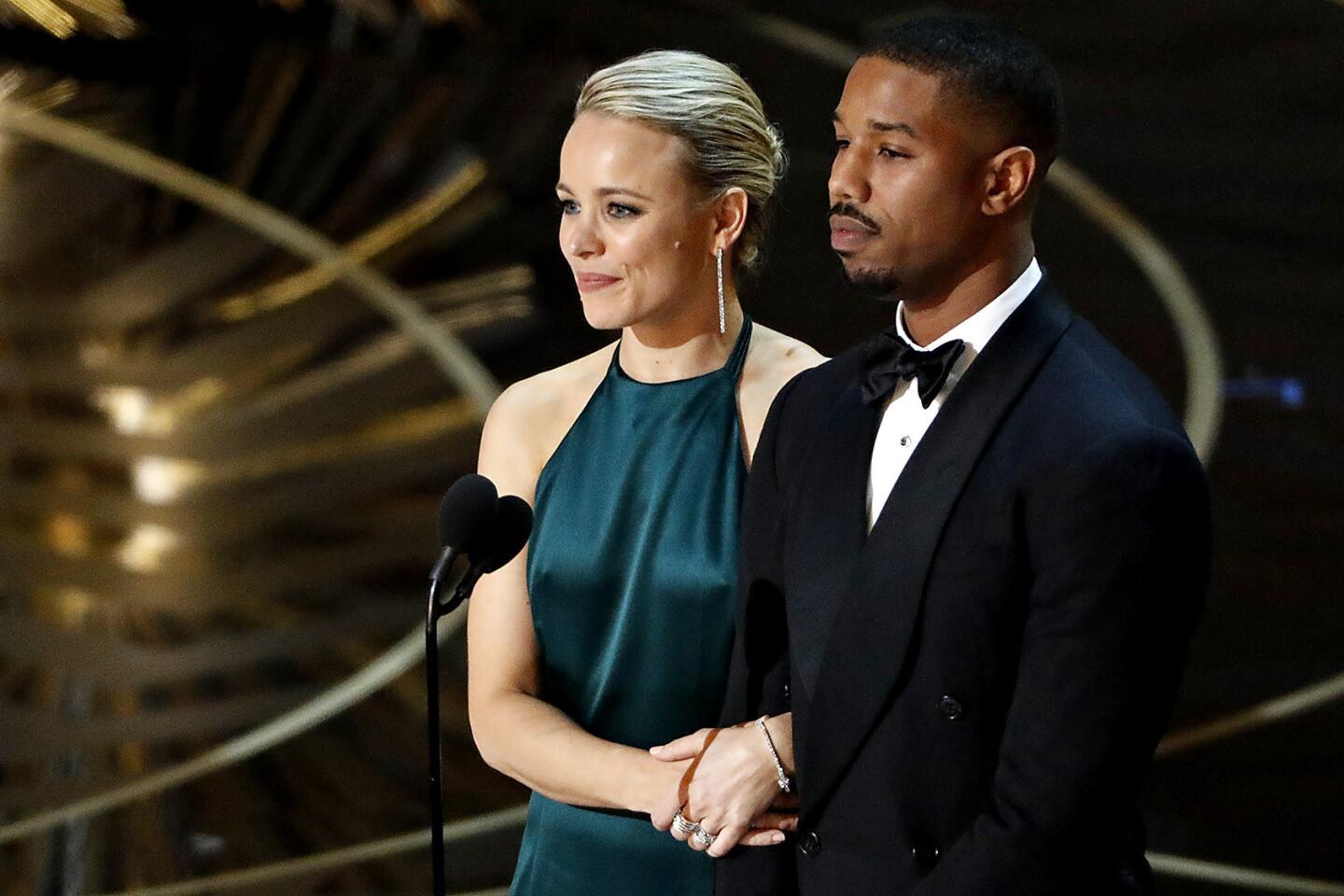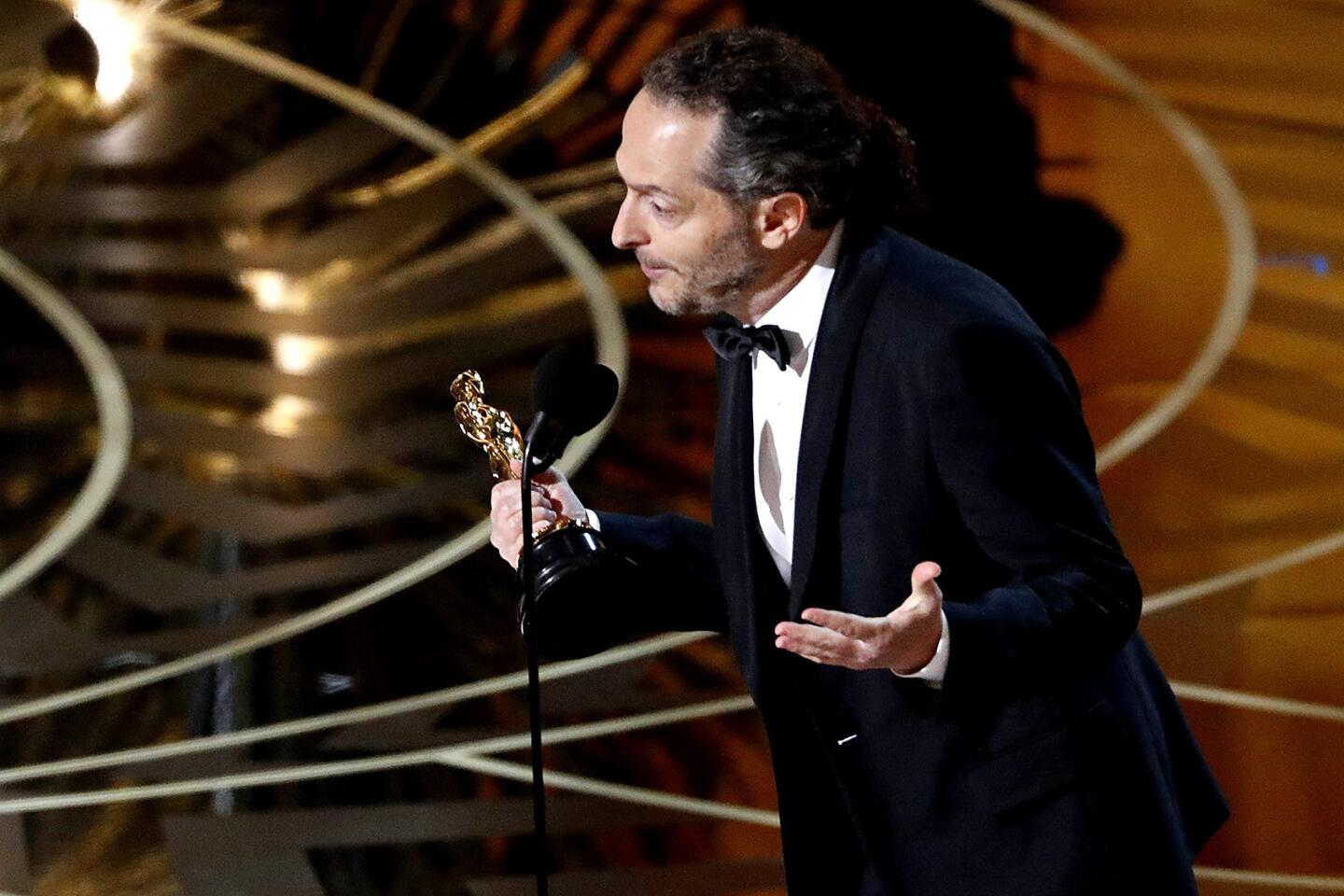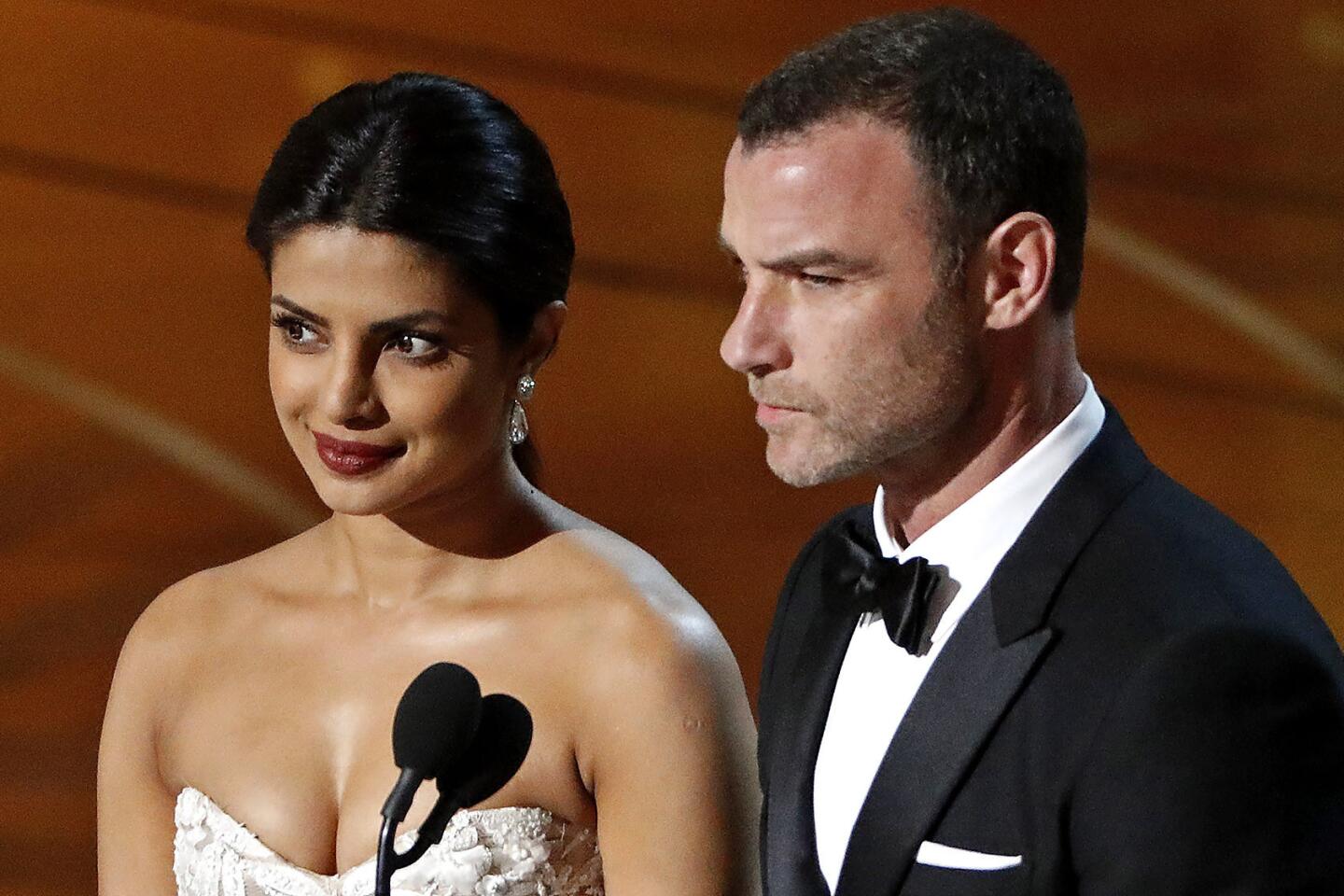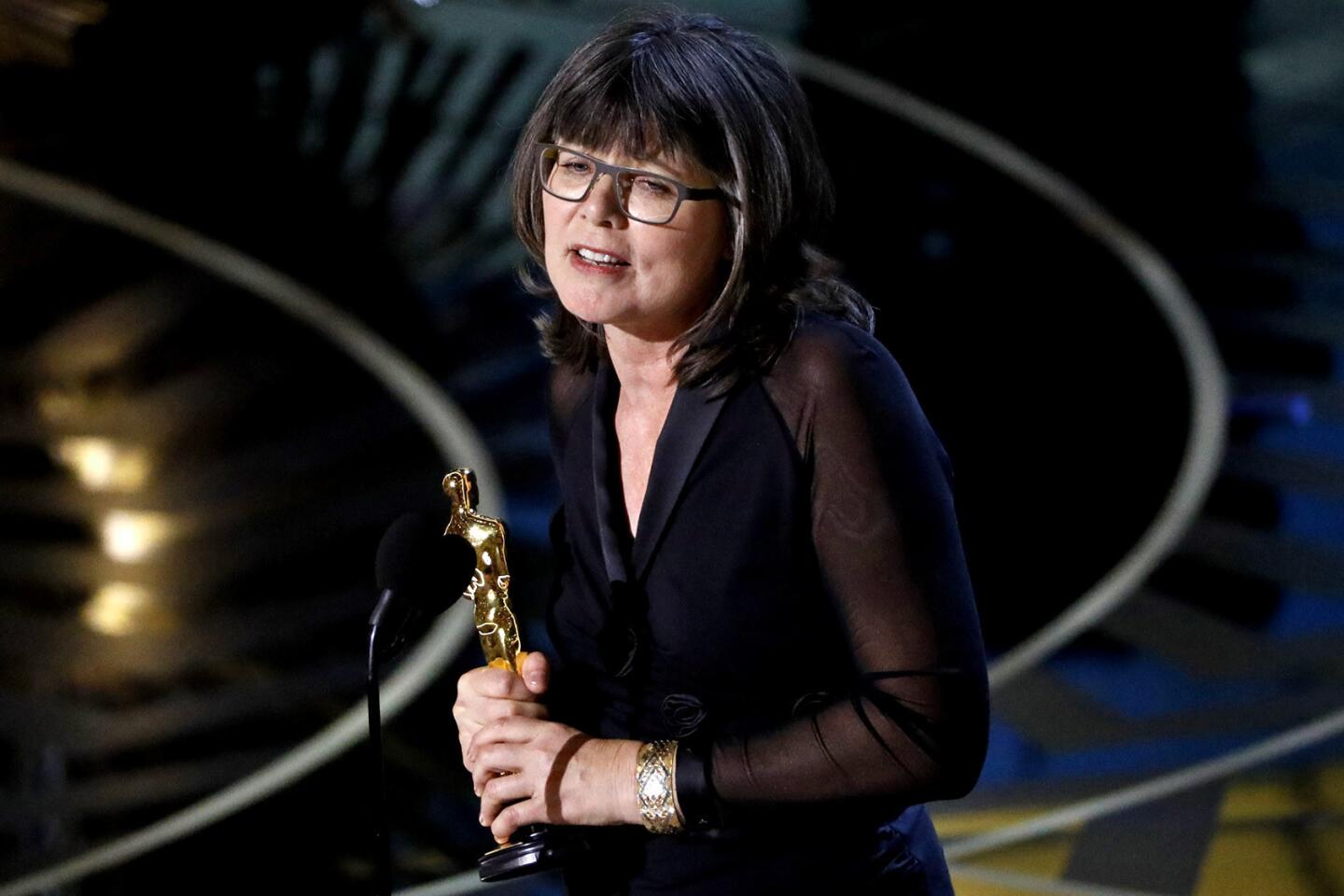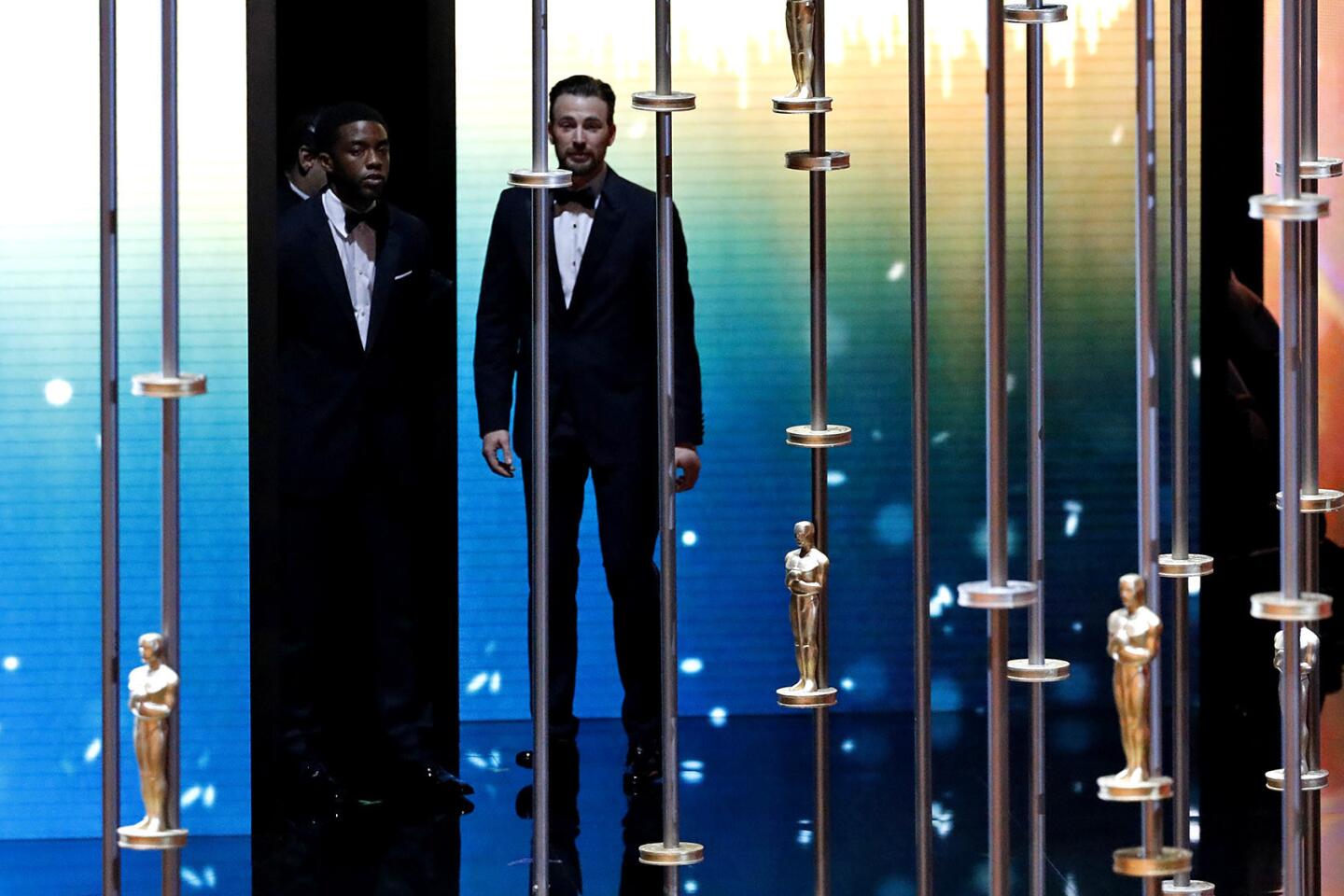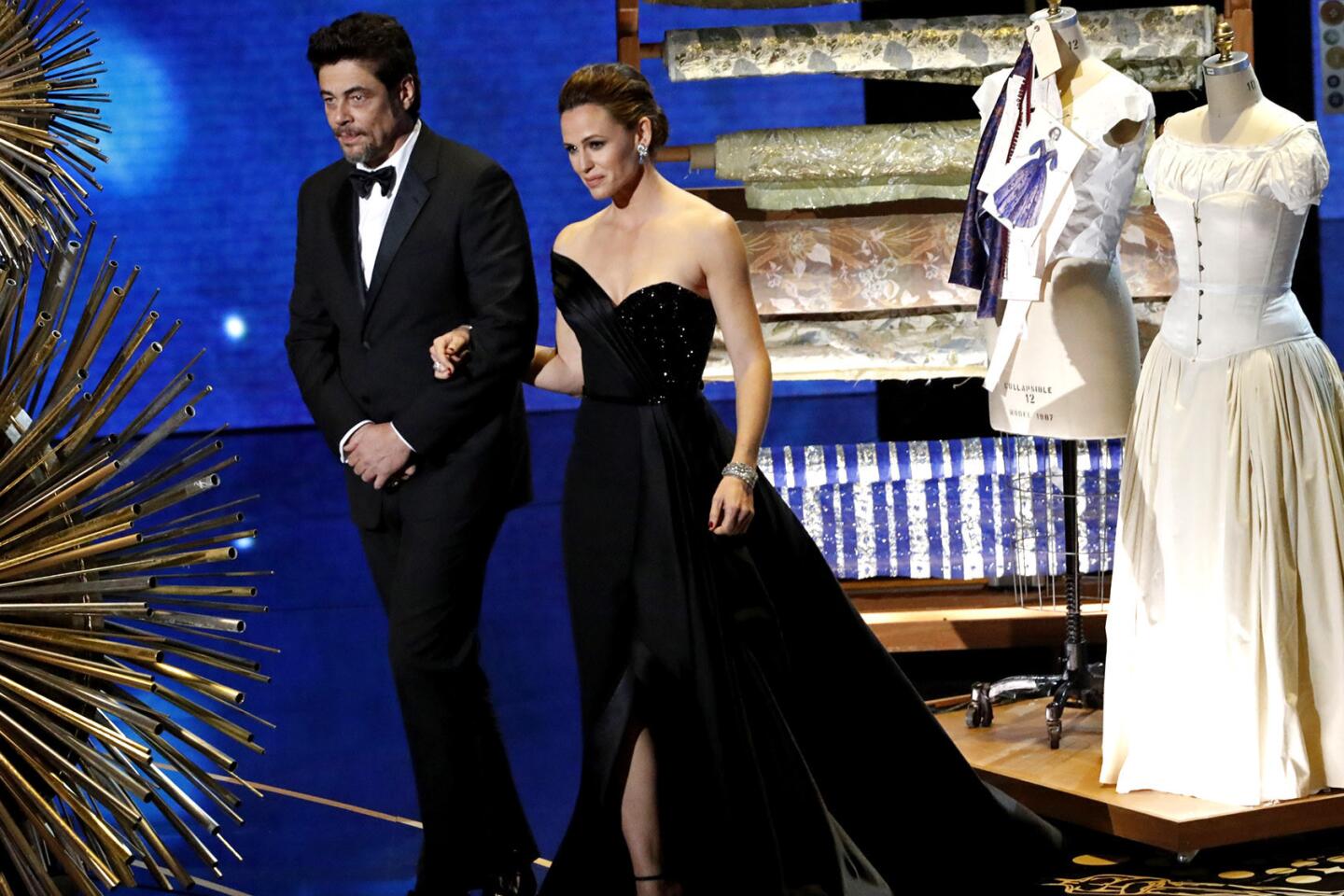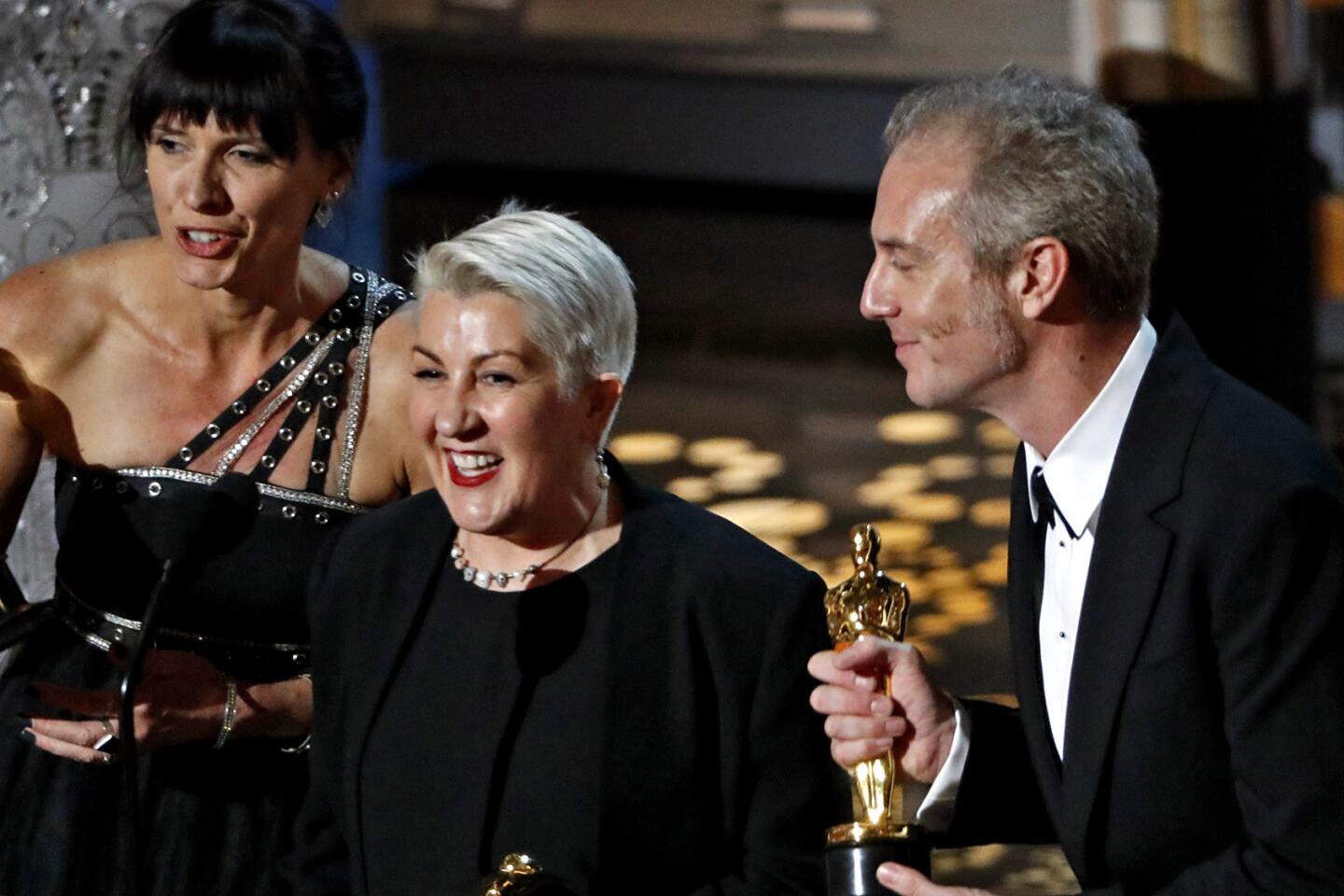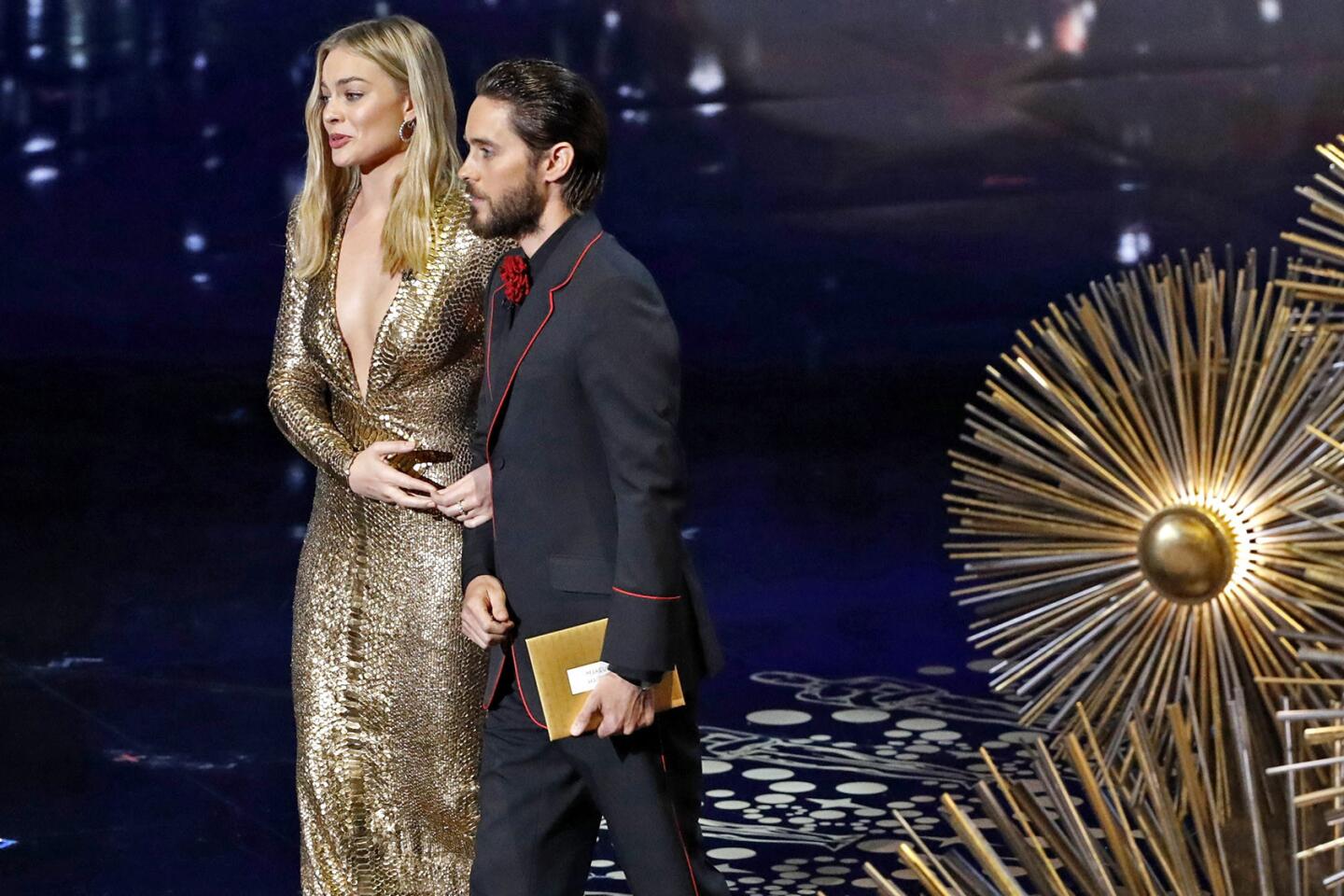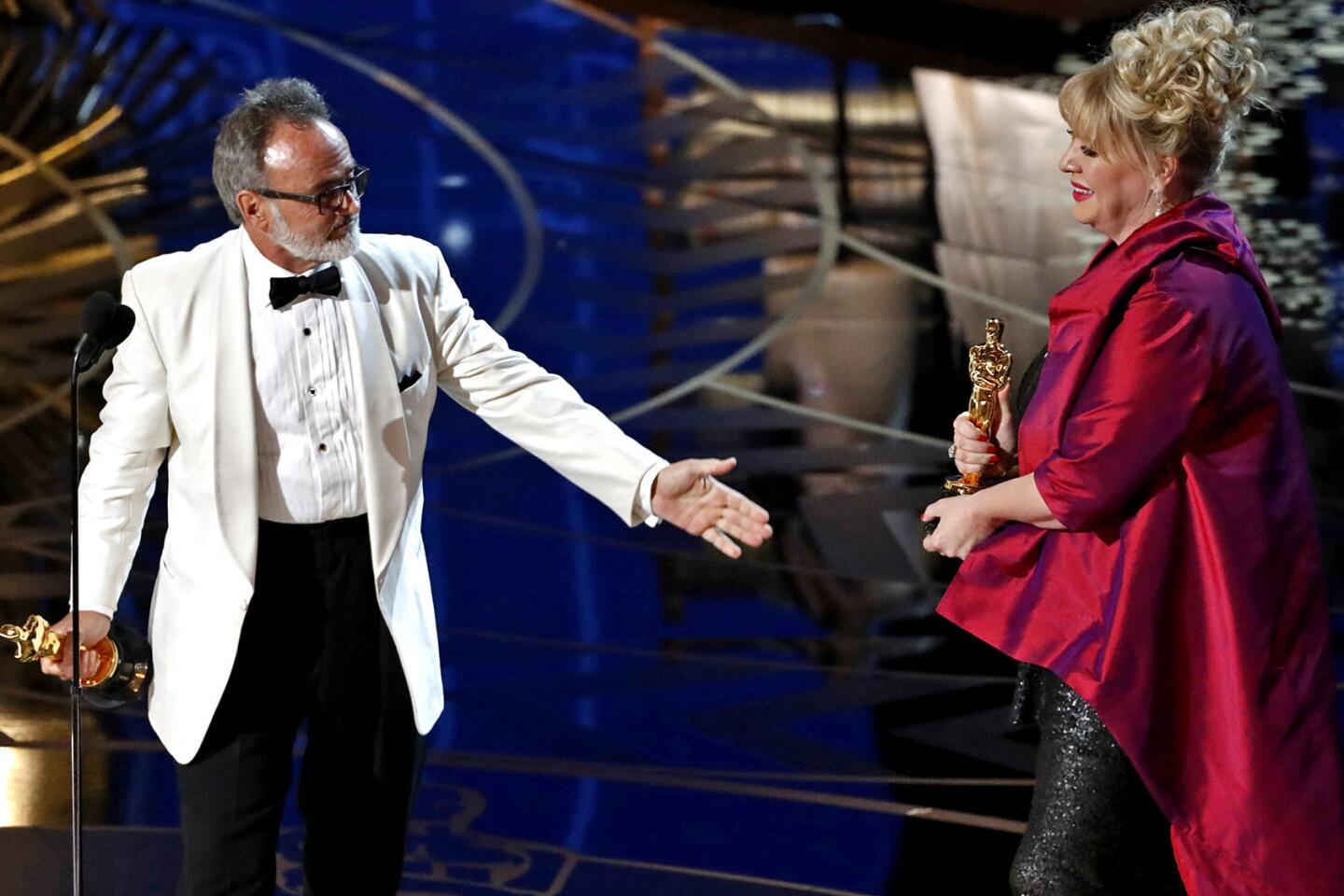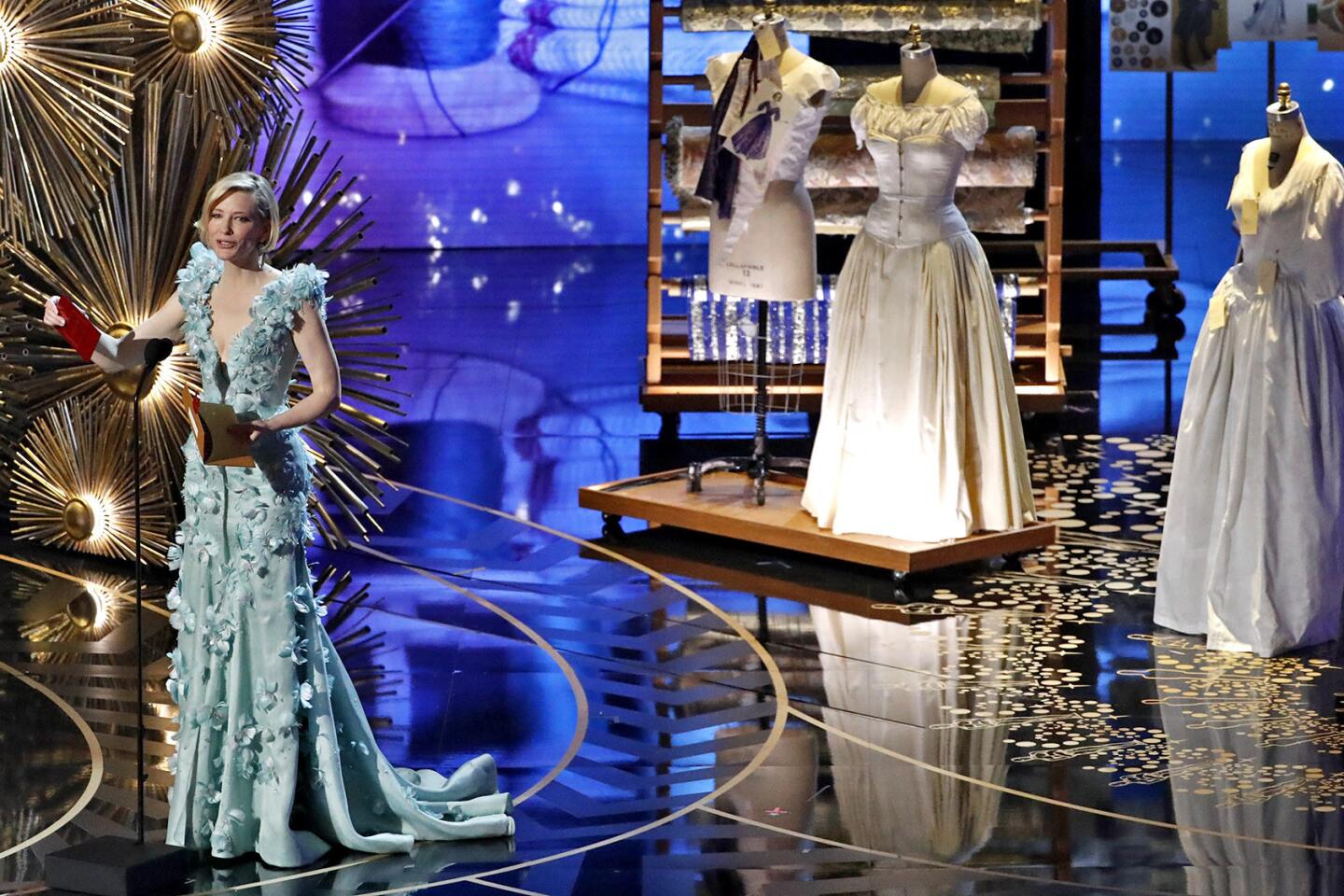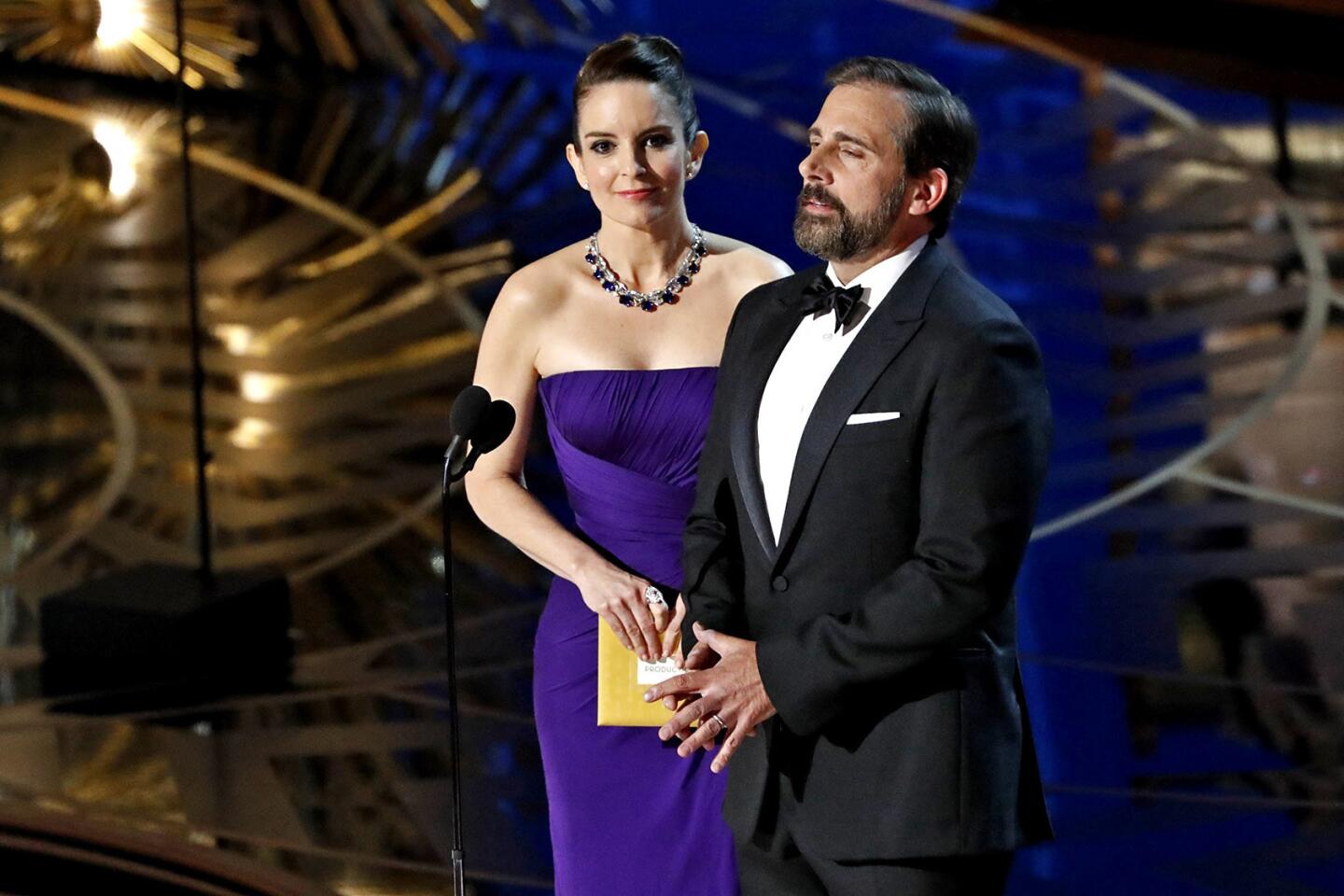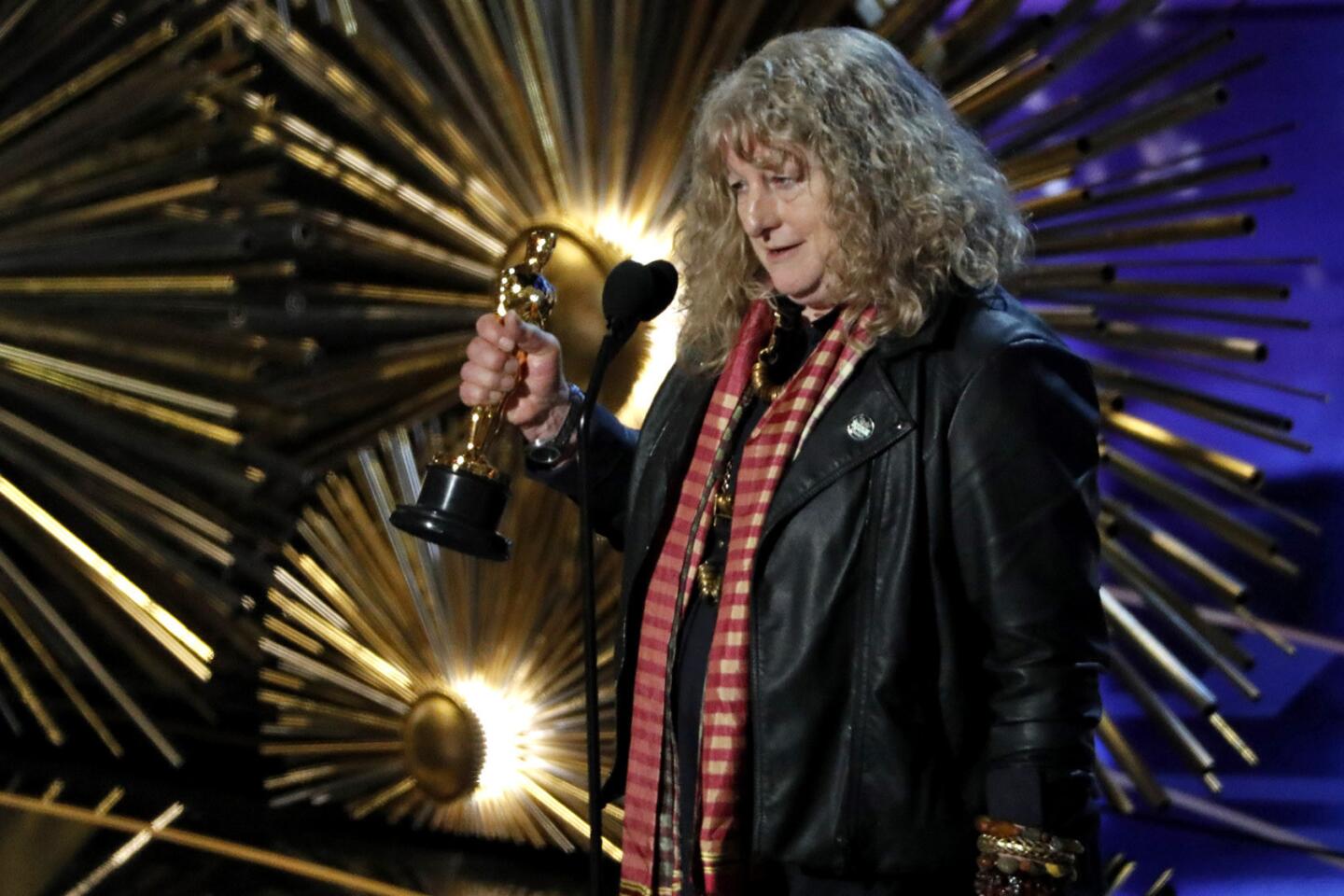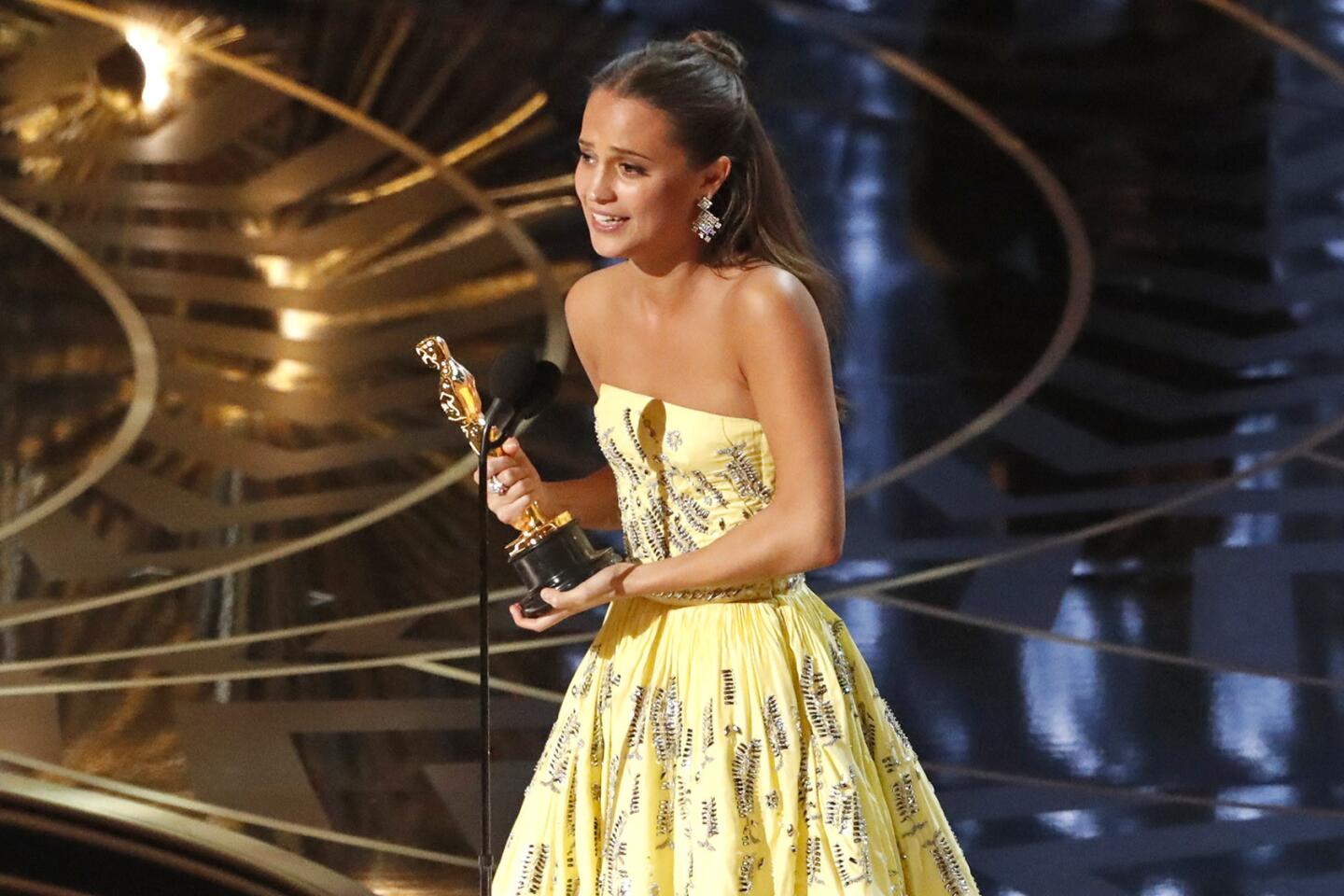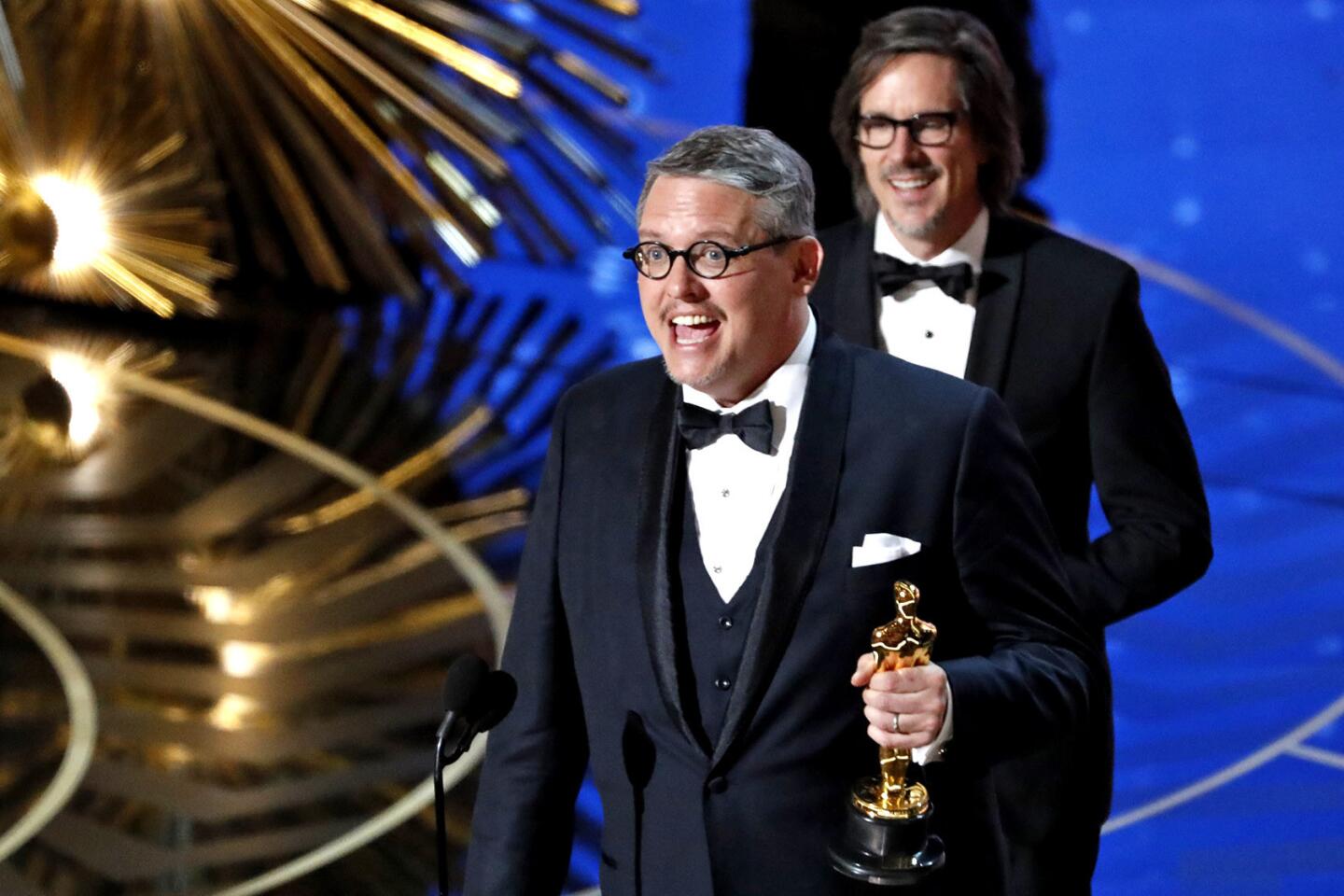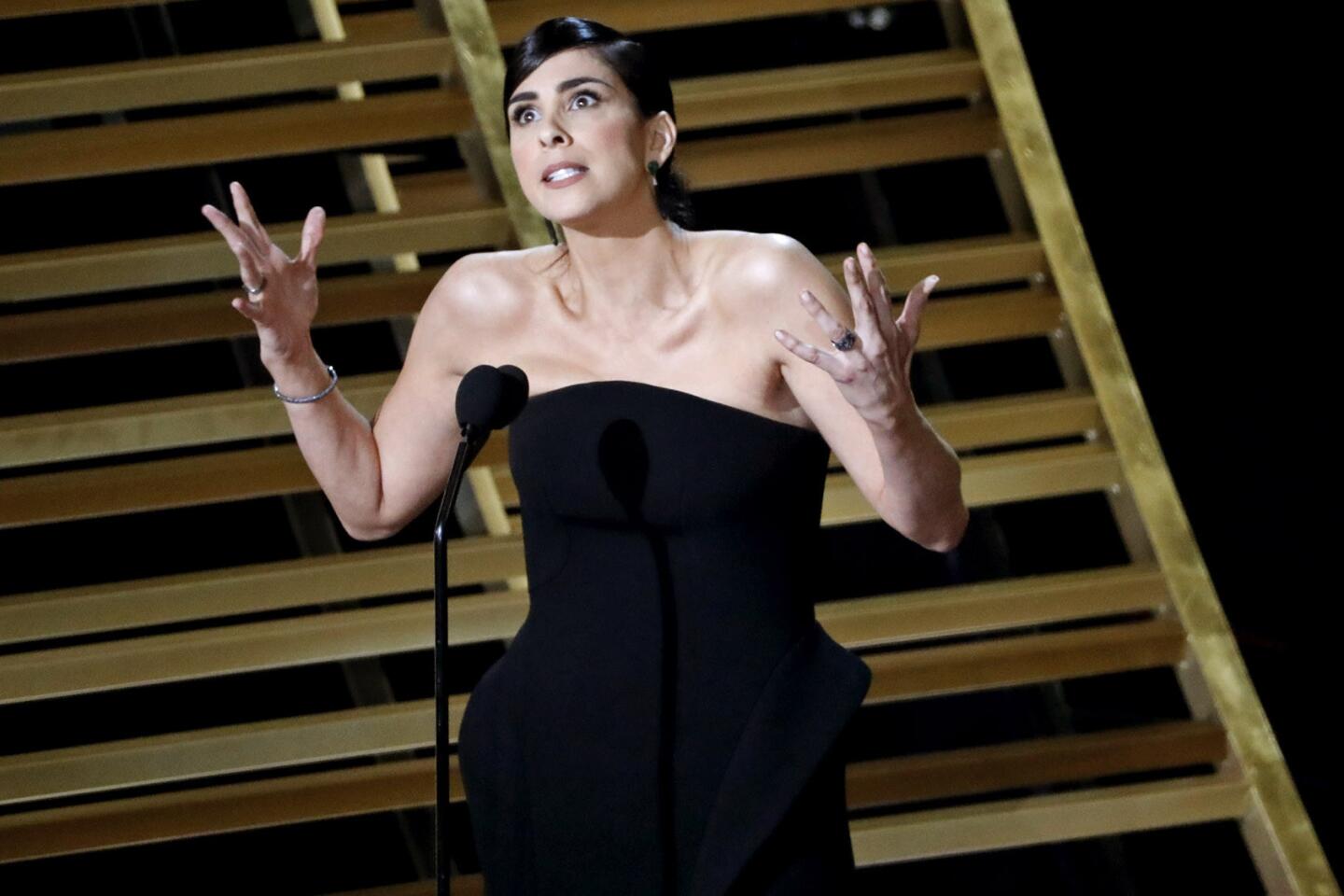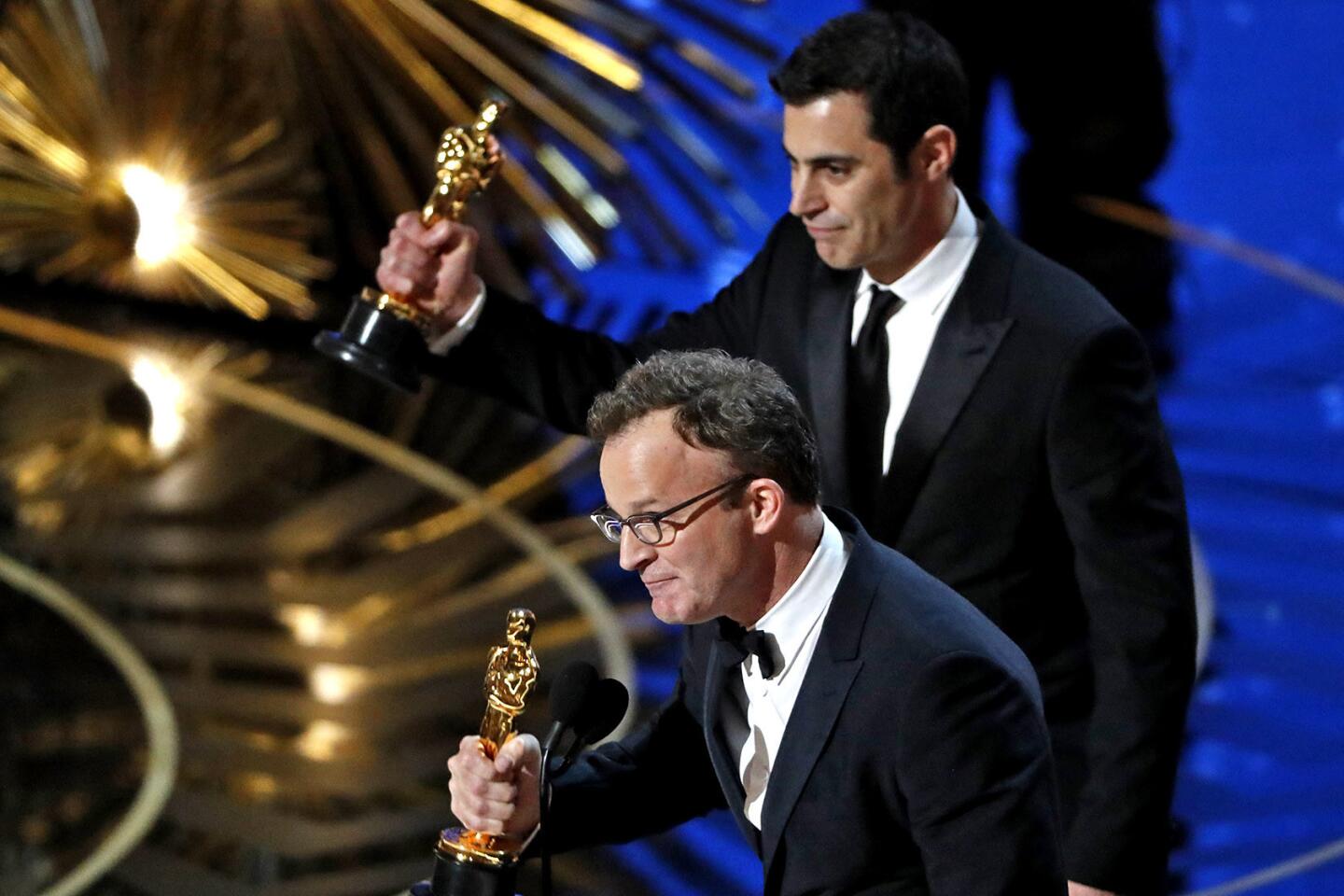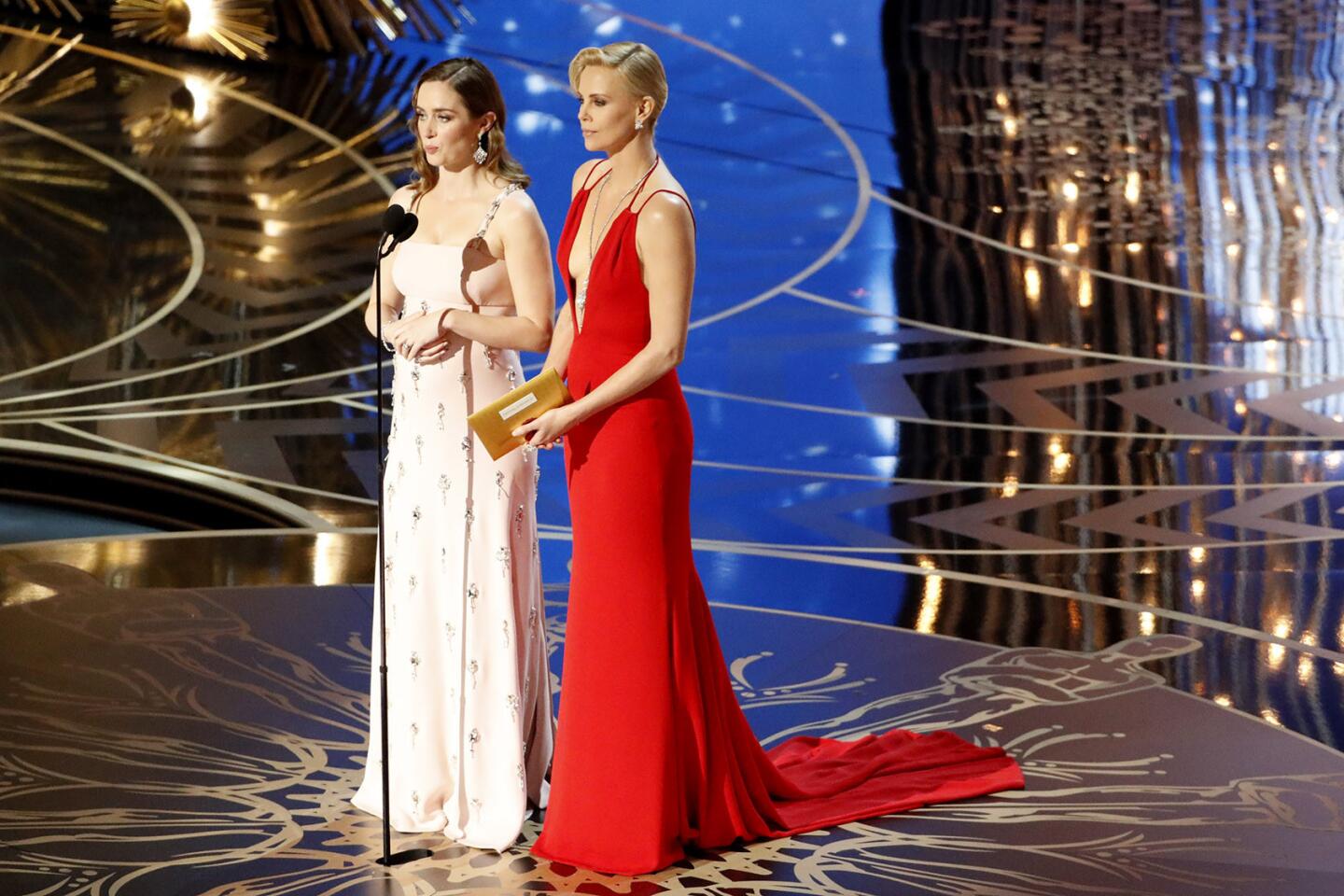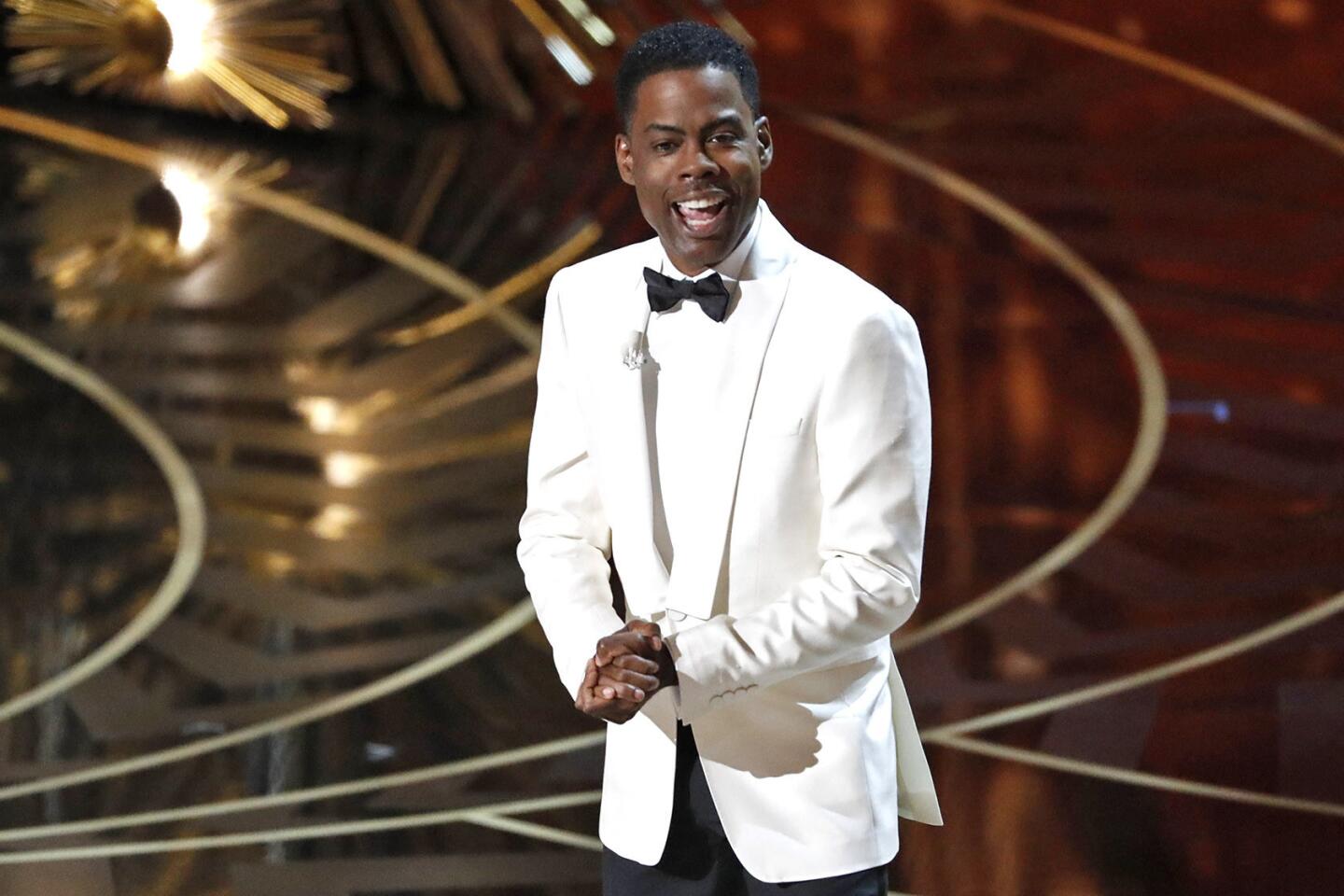Critic’s Notebook: Chris Rock was once a ‘risky’ choice as Oscars host, but everybody’s listening now
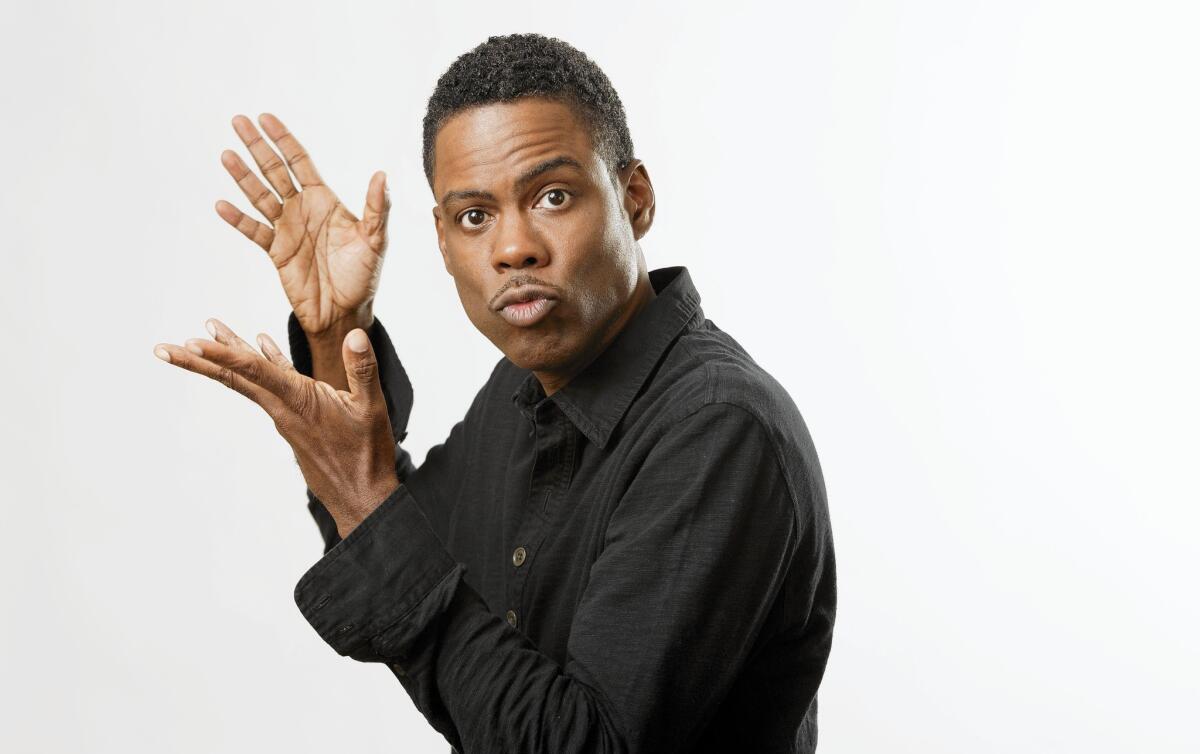
Chris Rock has long spoken out about race and the entertainment industry, so don’t expect him to hold back his second time around as Oscars host.
- Share via
Eleven years ago, the film academy considered itself quite daring when it asked Chris Rock to host the Oscars.
The first black man to preside solo over the festivities, Rock would, it was hoped, bring a younger, hipper, more urban audience to the telecast, perhaps tighten up its sagging ratings, make it seem a bit less calcified.
OSCARS 2016: Full coverage | List of winners | Read Chris Rock’s 2016 Oscars opening monologue | #OscarsSoWhite controversy
Unapologetically outspoken about his disinterest in the show — “They don’t honor comedy and there aren’t a lot of black people,” he said at the time, “so why would I watch?” — Rock was, in the parlance of the Oscaratti, a “risky” choice.
A bit too risky, as it turned out, at least for many. His monologue began with a joke about how unusual it was to have four black nominees, and it included a rant about how movies for black people didn’t even get real names (“‘Barbershop.’ That’s not a name; that’s just a location.”) He pointed out the academy’s ivory tower problem by asking Magic Johnson Theatres patrons to name their best movie of the year. “White Chicks” got a lot of traction.
VIDEO: The five best lines from Chris Rock’s Oscars monologue >>
Some people laughed, but many more squirmed. Hollywood, like an overconfident doyenne whose cleverly cast dinner party unexpectedly becomes a bit too real, responded with a frozen smile. It was immediately, and correctly, assumed that Rock would not be asked back.
Until now.
Depending on your level of cynicism, this year’s choice of Rock to host the Oscars feels divinely inspired or like a very smart preemptive move.
Long before the nominations were announced, it was clear that, once again, most of the Oscar hopefuls revolved around white folks and their issues. Still, the complete absence of nonwhite nominees in the acting categories for a second year in a row provoked protest, calls for a boycott and a swift pledge by the Academy of Motion Picture Arts and Sciences to broaden its membership.
The Oscars, instead of being preceded by the traditional round of self-involved concerns over ratings and relevance, found itself in the middle of a larger, and scarier, conversation about race.
Suddenly Rock became the man of the moment, not as the titillating provocateur, but as veteran truth-teller. Virtually overnight, he was moved off those Worst Hosts Ever lists to become A Man Ahead of His Time.
Everyone gets the Magic Johnson Theatres joke now, Chris. And “White Chicks”? That really was a great movie!
This year, no one needs Rock to shake things up; they need him to spell things out. “Rock has been outspoken about the issue for years” has become all but boilerplate in the multimedia musings over how he’s going to handle the evening.
It is certainly possible that he will briefly acknowledge the “elephant in the room” before asking it to leave, as academy President Cheryl Boone Isaacs did at the Oscar luncheon, just as it is possible that he will bring an actual elephant onto the stage and keep it there for the duration of the show (I double-dog dare you, man).
But many believe he will somehow salvage the moment. That, with the benefit of comedy and his new status as social arbiter Rock will be able to make some sort of definitive statement that acknowledges the problem and the anger it has sparked, while still celebrating those nominated in the year that #OscarsSoWhite dominated the season’s news cycle.
Fortunately this year, he won’t be speaking into a vacuum; if the Dolby Theatre audience is prepared for pointed commentary about race, the 40 million or so people expected to be watching on television are even more so. Especially fans of ABC, the network airing the Oscars, which Rock has called in promos “the only ABC show that Shonda Rhimes doesn’t own. Yet.”
Television — as every media outlet in the country has been pointing out for a while — though still overwhelmingly white and male, has been covering far more demographic ground of late than film.
Years after Rhimes demanded that casting directors stop sending her only white actors for the roles in “Grey’s Anatomy,” shows as disparate as “Sleepy Hollow” and “Chicago Med” include main characters of every race and background; Netflix’s “Orange Is the New Black” alone has more women of color in main roles than all of this year’s films put together.
More important, many of these shows, including “Orange”; ABC’s “black-ish,” “How to Get Away With Murder” and “American Crime”; Fox’s “Empire”; NBC’s “The Carmichael Show”; and now FX’s “The People v. O.J. Simpson,” address issues of racism, and other forms of exclusion and oppression, with a directness mostly absent from TV since the days of Norman Lear.
An upcoming episode of the returning comedy “The Carmichael Show” deals with its black family’s conflicting feelings about Bill Cosby. Days before the Oscar telecast, “black-ish” dealt with the grim realities of raising black children in a country where police brutality is still too common and often unpunished.
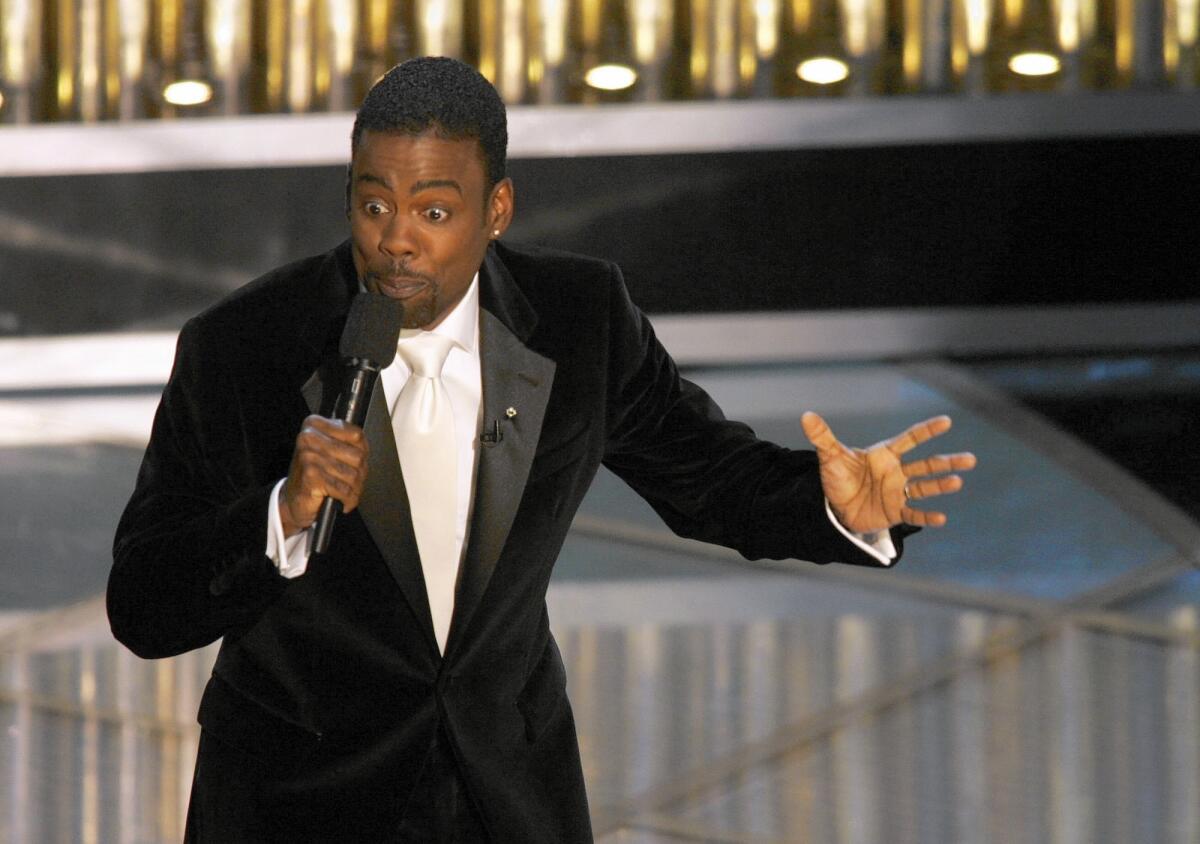
Chris Rock’s pointed monologue in his first time as Oscars host caused discomfort in 2005.
Racism, among law enforcement and ordinary citizens, drove the first season of “American Crime” just as it obviously drives “The People v O.J. Simpson,” which, when not falling prey to the same queasy distractions of celebrity and personality politics that plagued the actual trial, illustrates in chilling detail how racism corrupts the justice system in every way at every level.
Or as Anthony Anderson’s Dre says in “black-ish:” “We were so desperate for a win we had to root for that jerk.”
So that’s how much time has passed, and that’s how much things have changed — and stayed the same. The Oscars are still so white, but a broadcast comedy can land a joke about the racial backlash that fueled the Trial of the Century.
Chris Rock really is the perfect choice, and as long as he doesn’t pretend that the elephant is imaginary, he’s going to be just fine.
We’re bringing you live updates, fashion play-by-plays and real-time commentary >>
MORE OSCARS:
Leonardo DiCaprio ties his work in ‘The Revenant’ to a greater cause -- fighting climate change
The stories of sexual assault survivors are the real winners of Oscars season
Alicia Vikander’s supporting actress Oscar caps off a whirlwind year
91% white. 76% male. Changing who votes on the Oscars won’t be easy
More to Read
The complete guide to home viewing
Get Screen Gab for everything about the TV shows and streaming movies everyone’s talking about.
You may occasionally receive promotional content from the Los Angeles Times.
